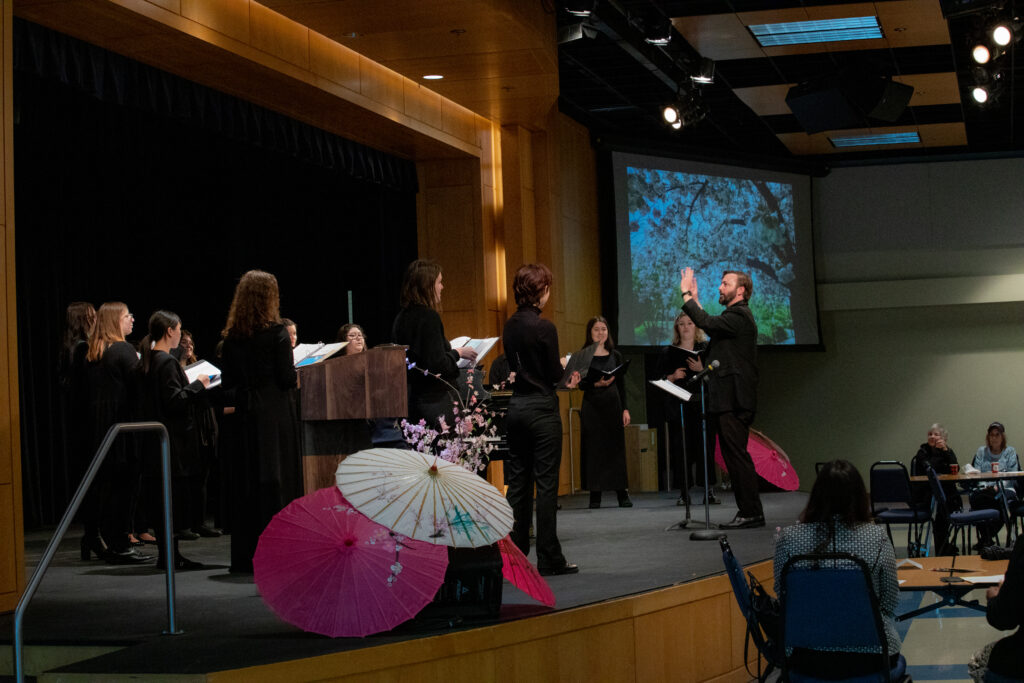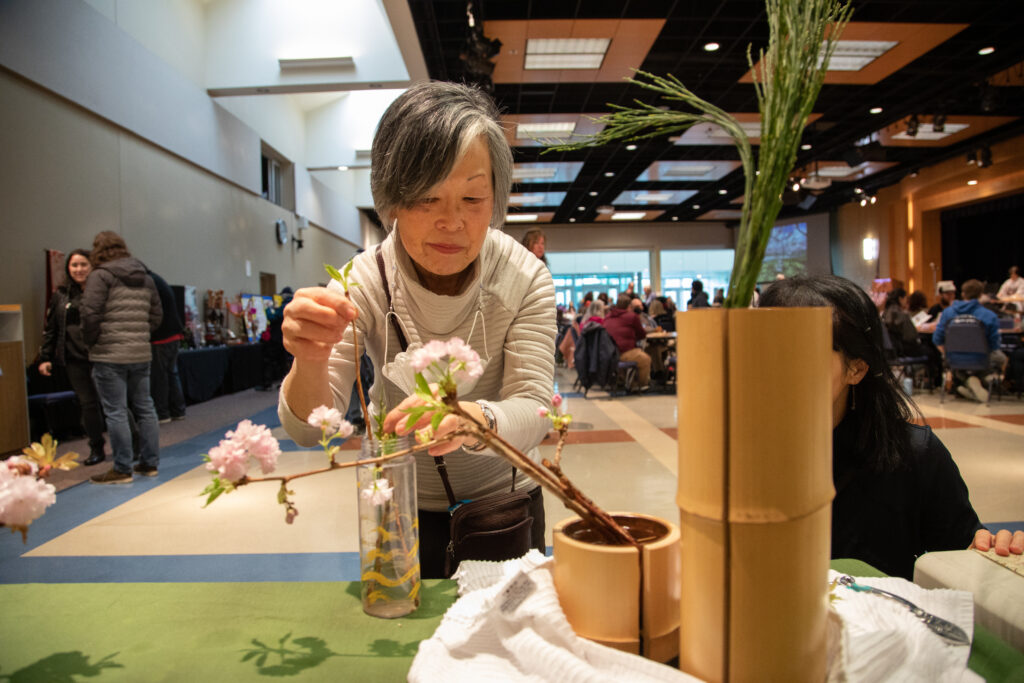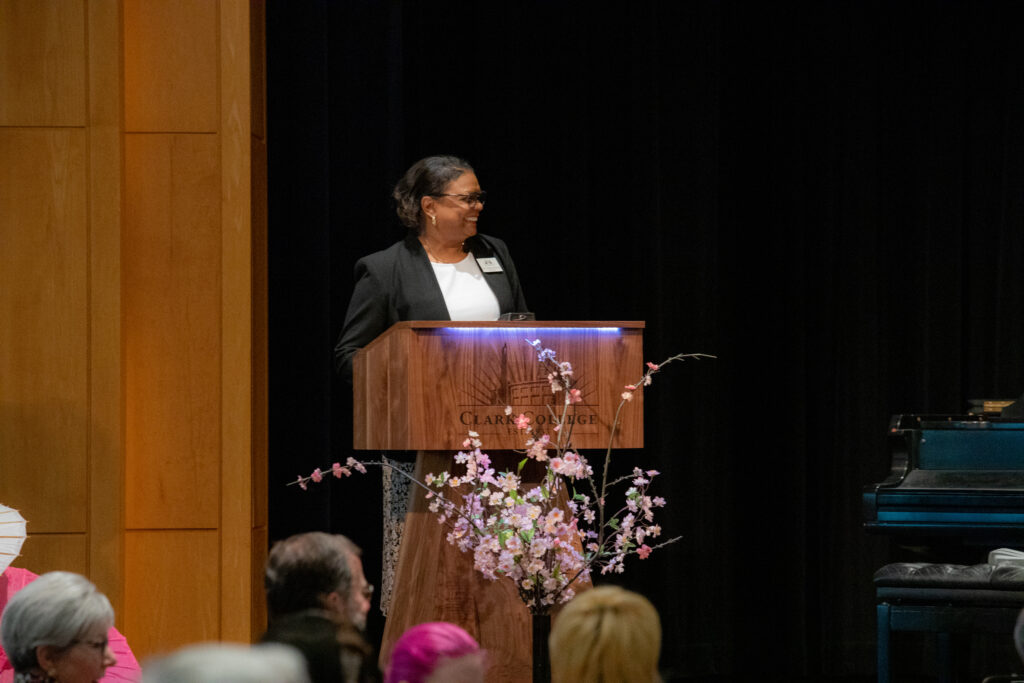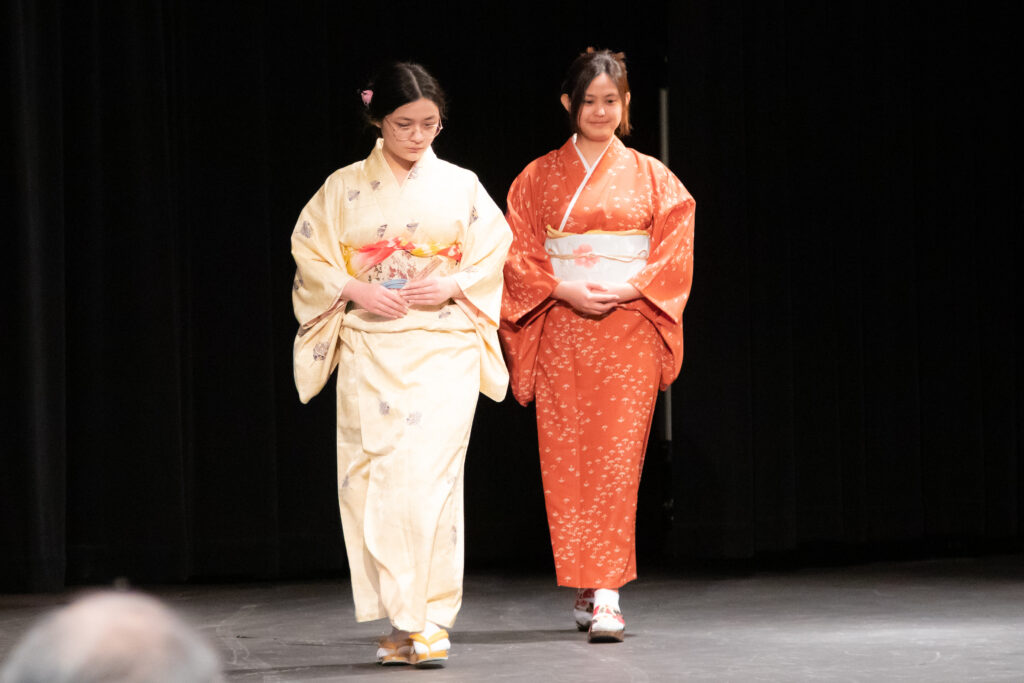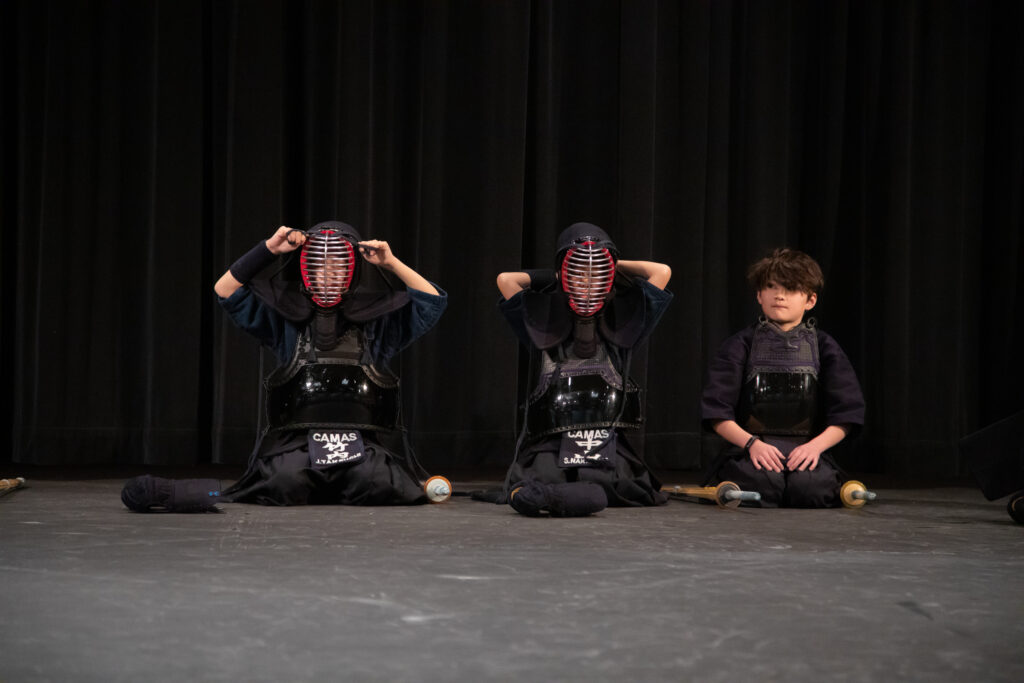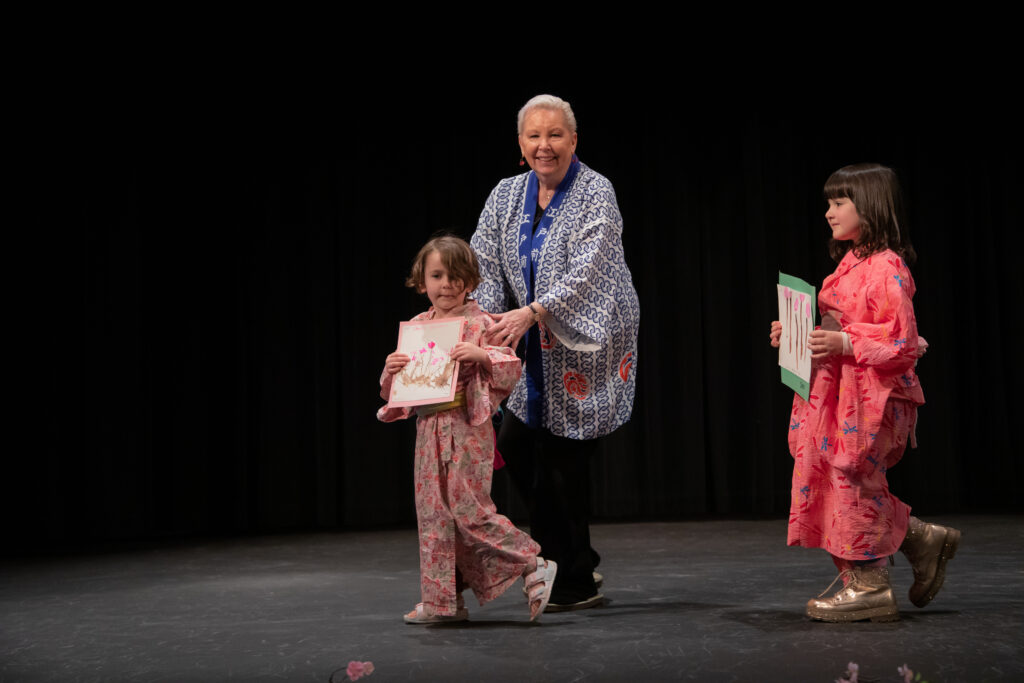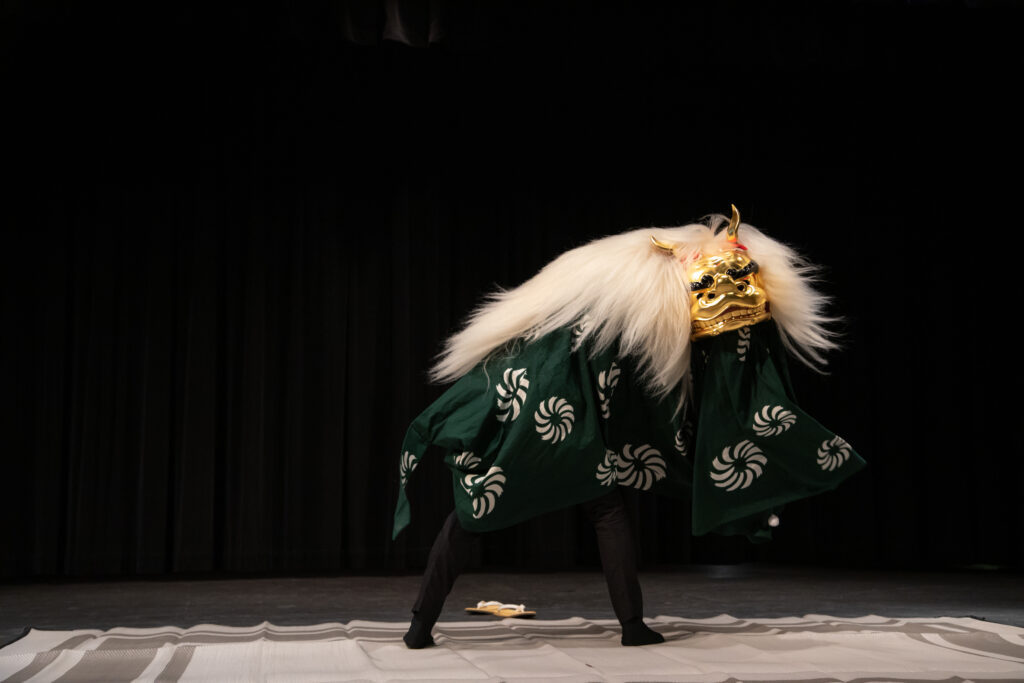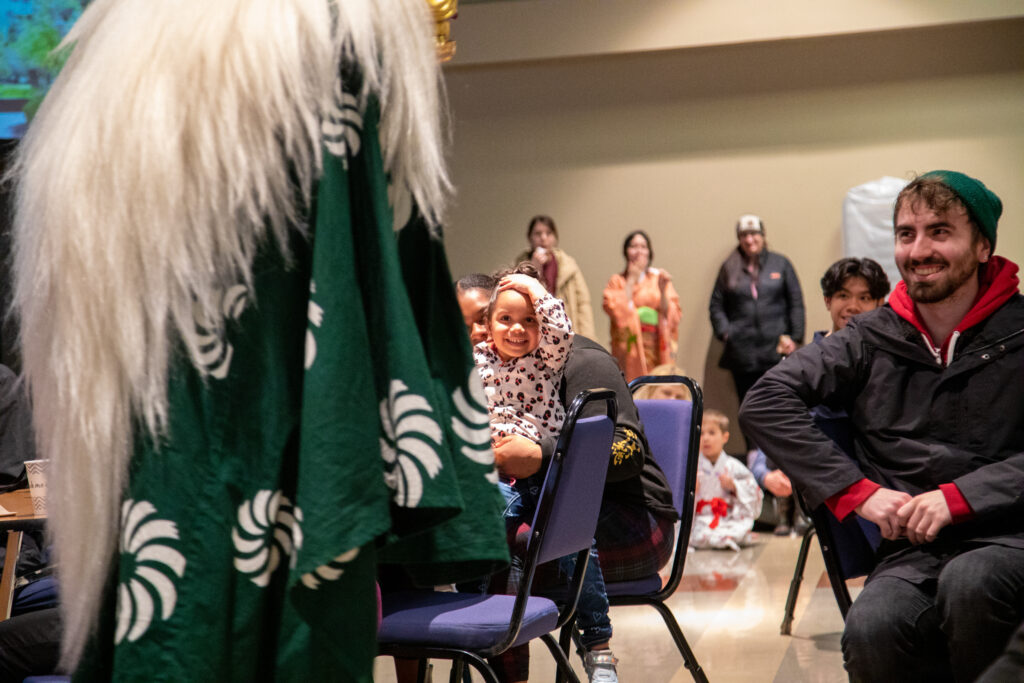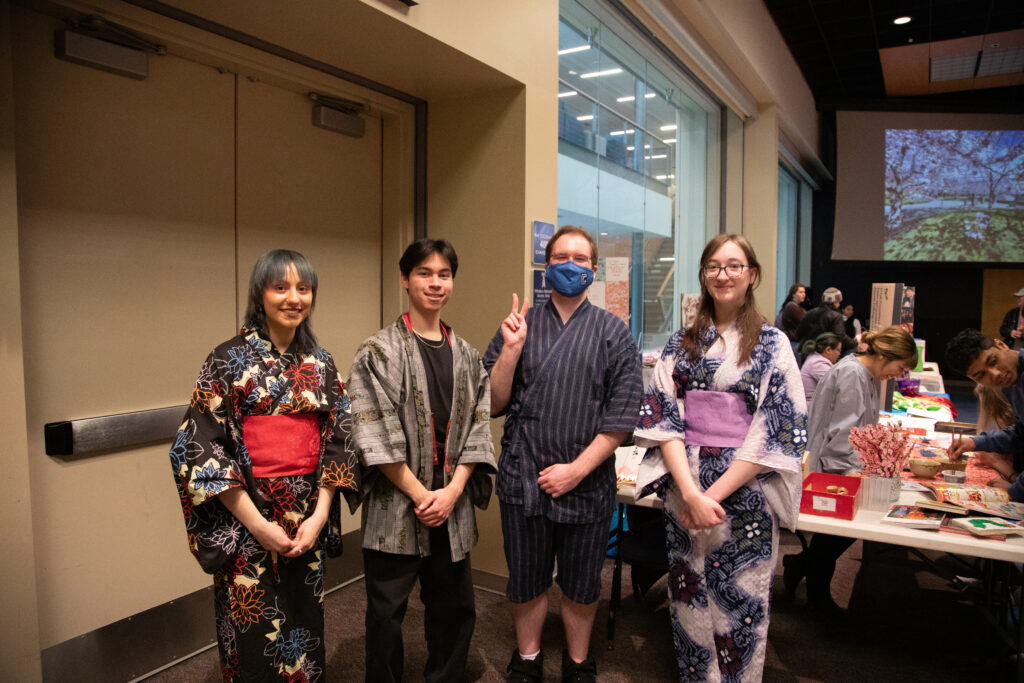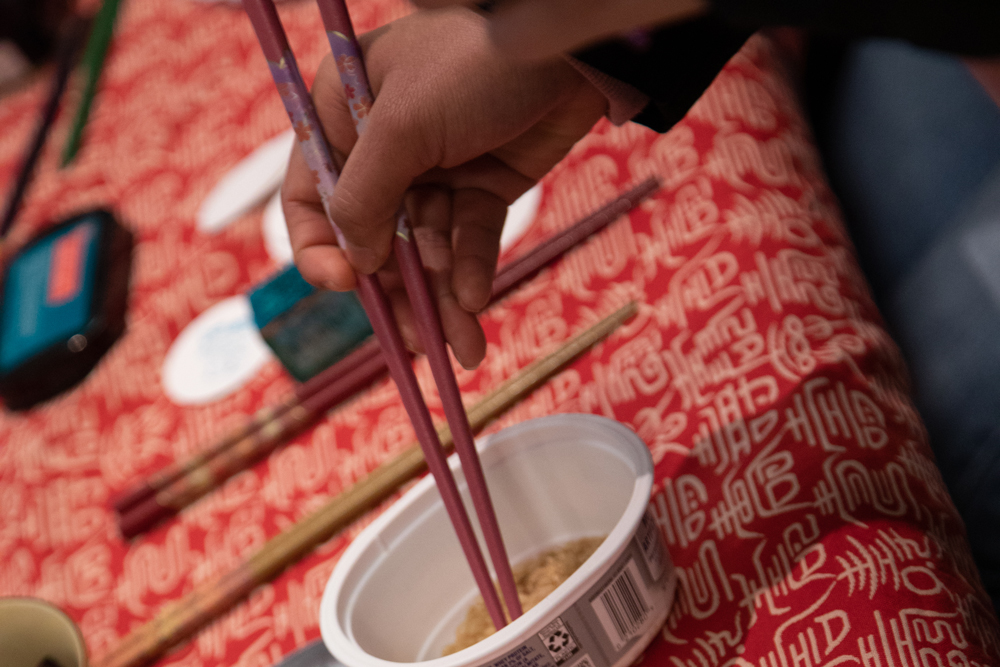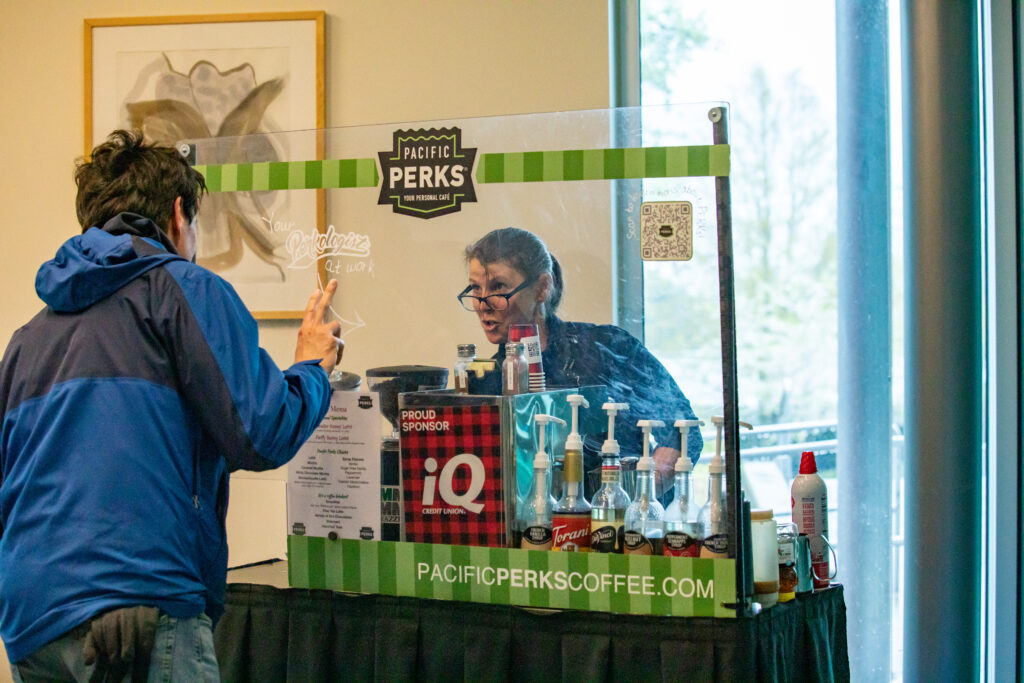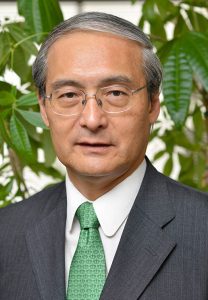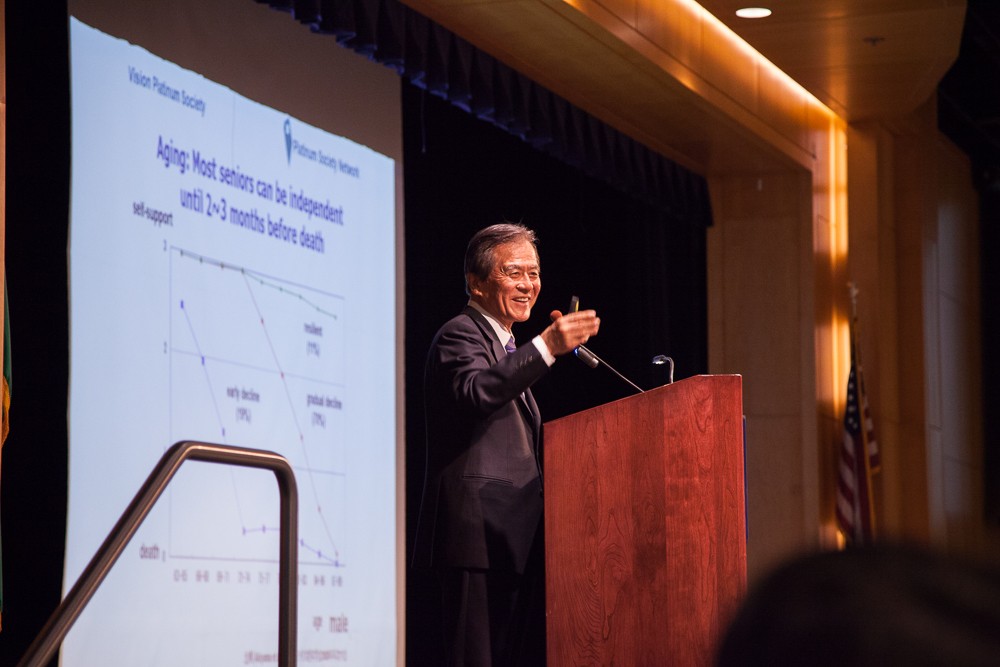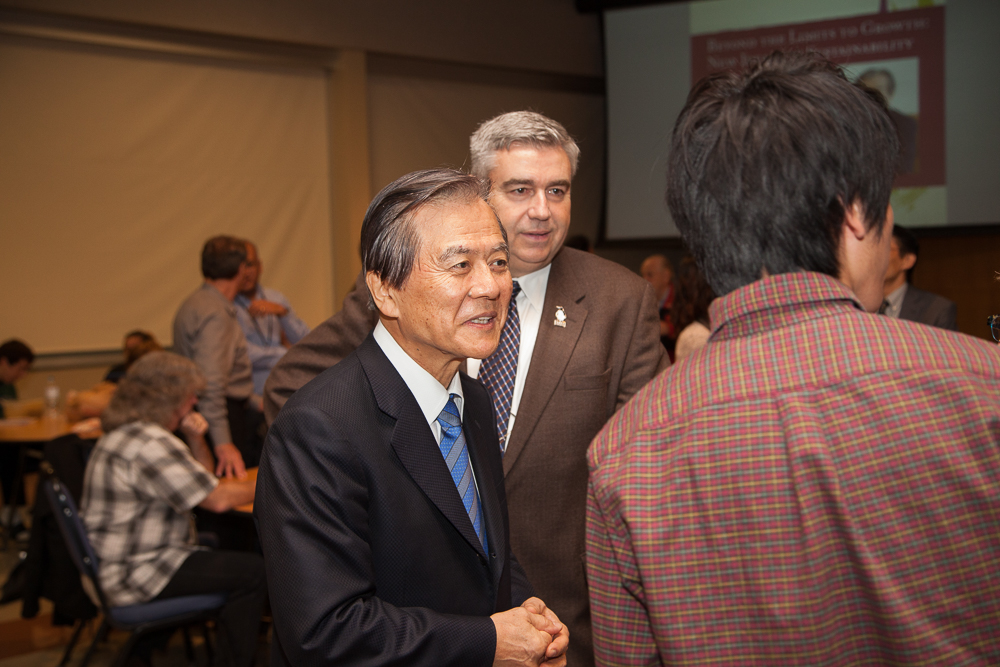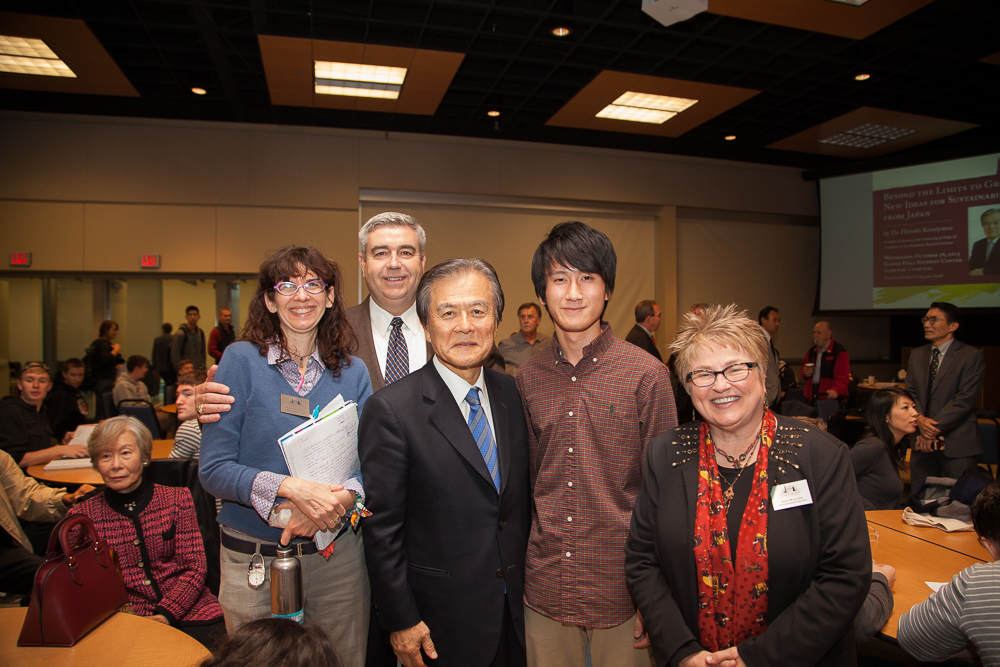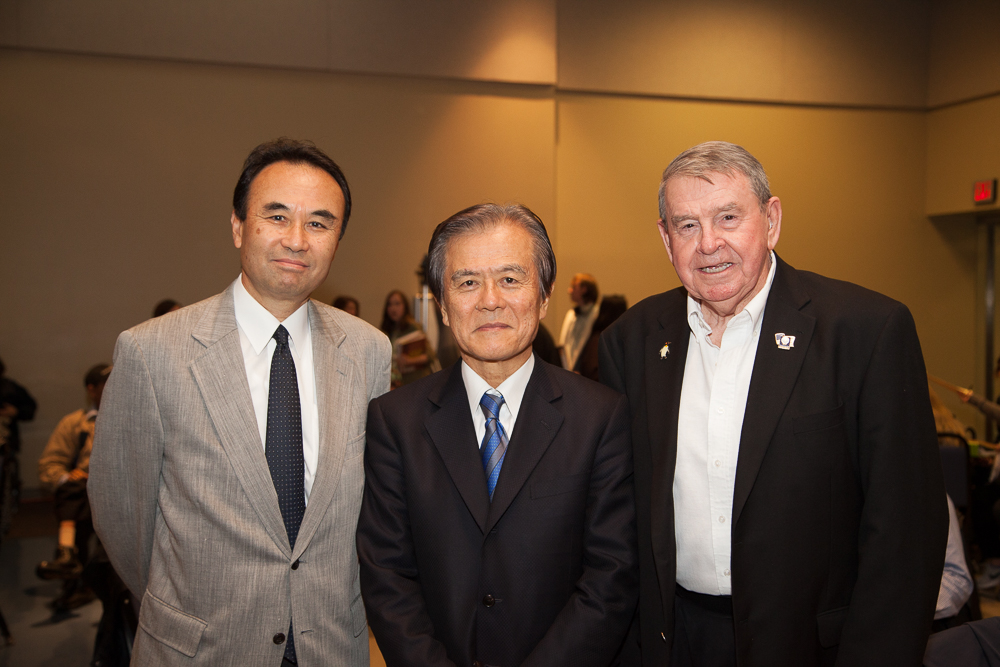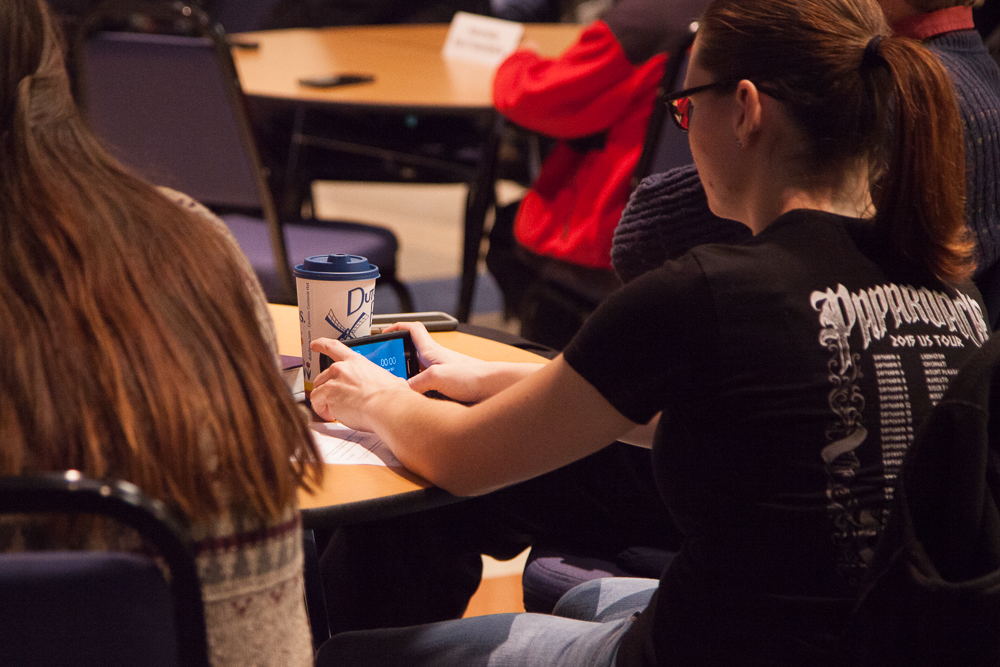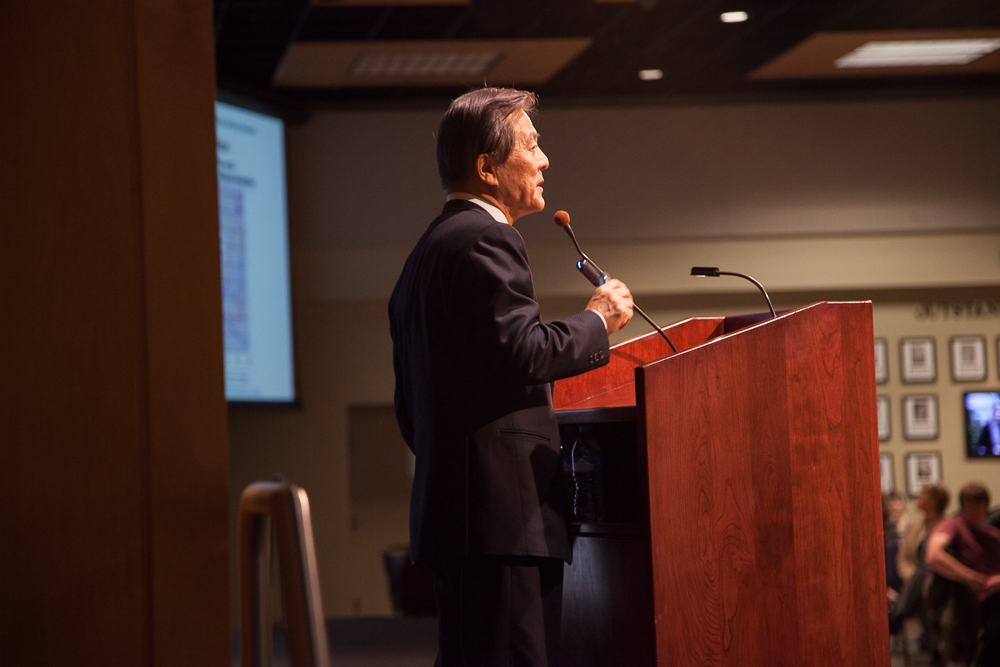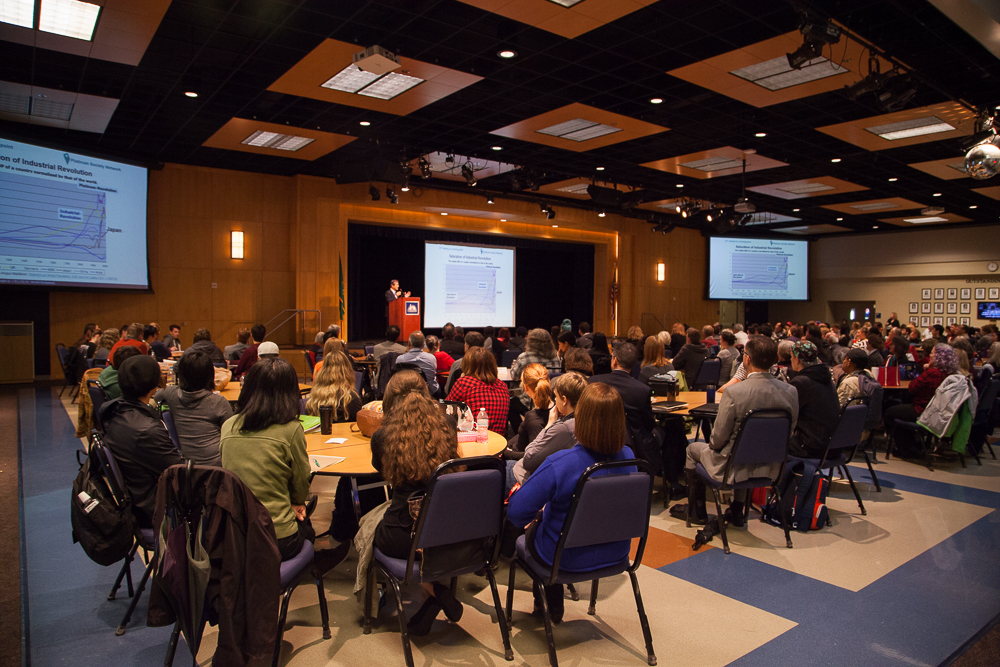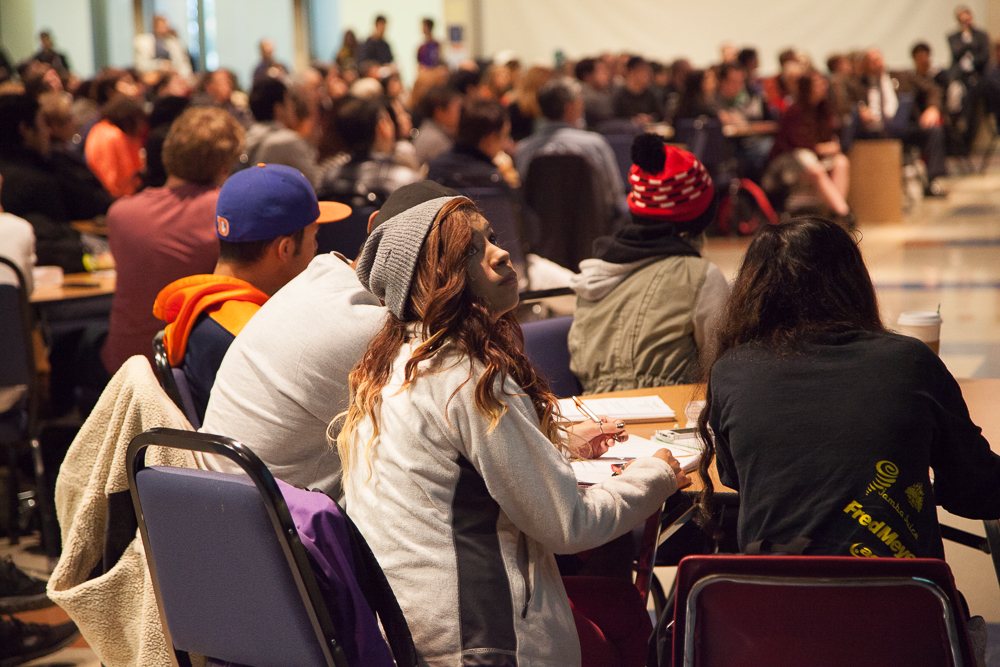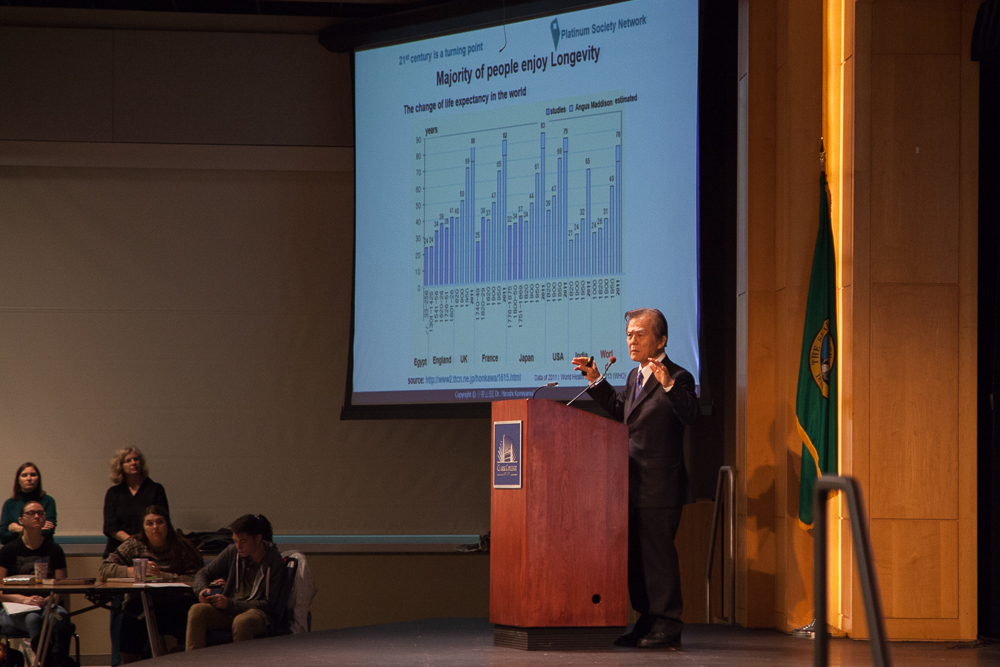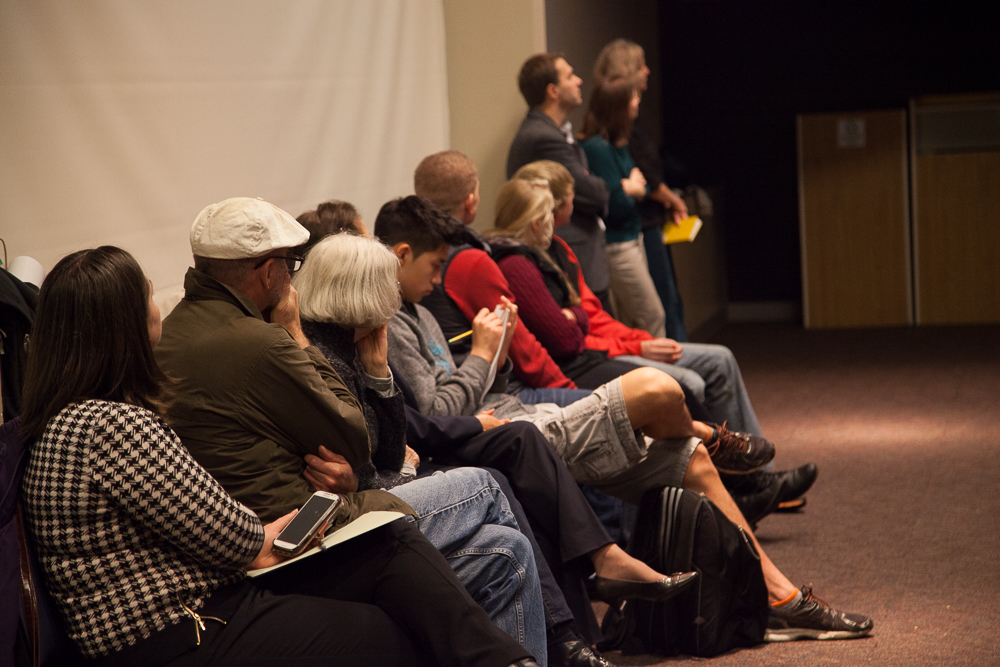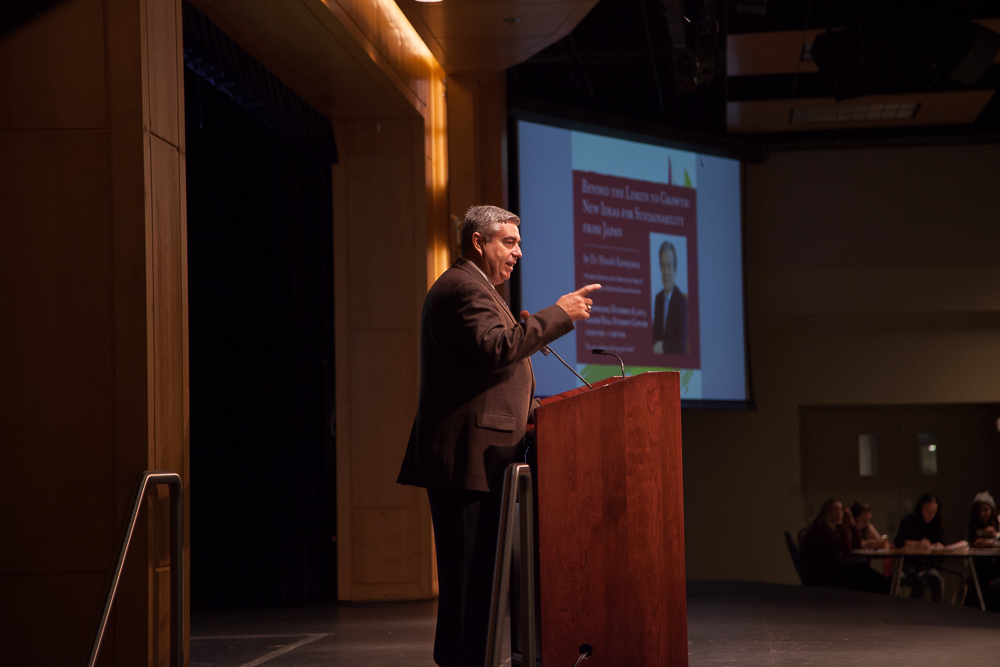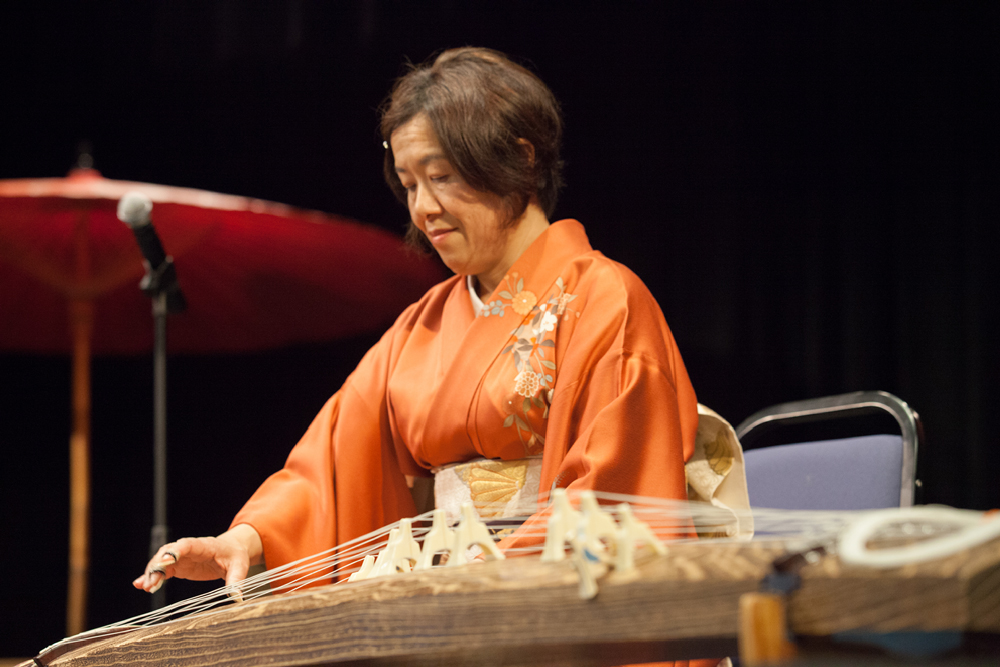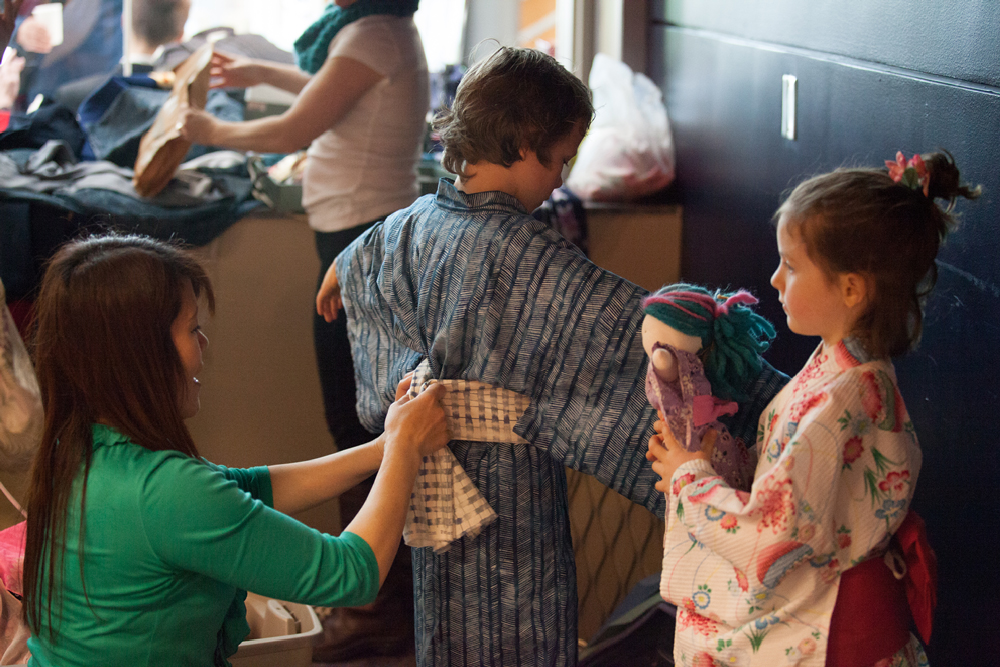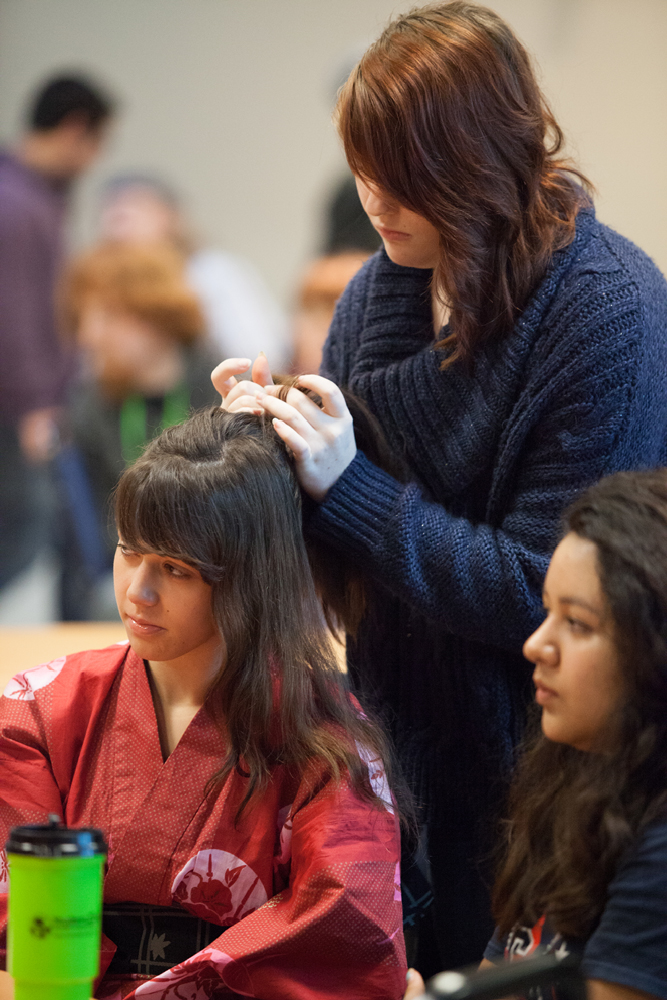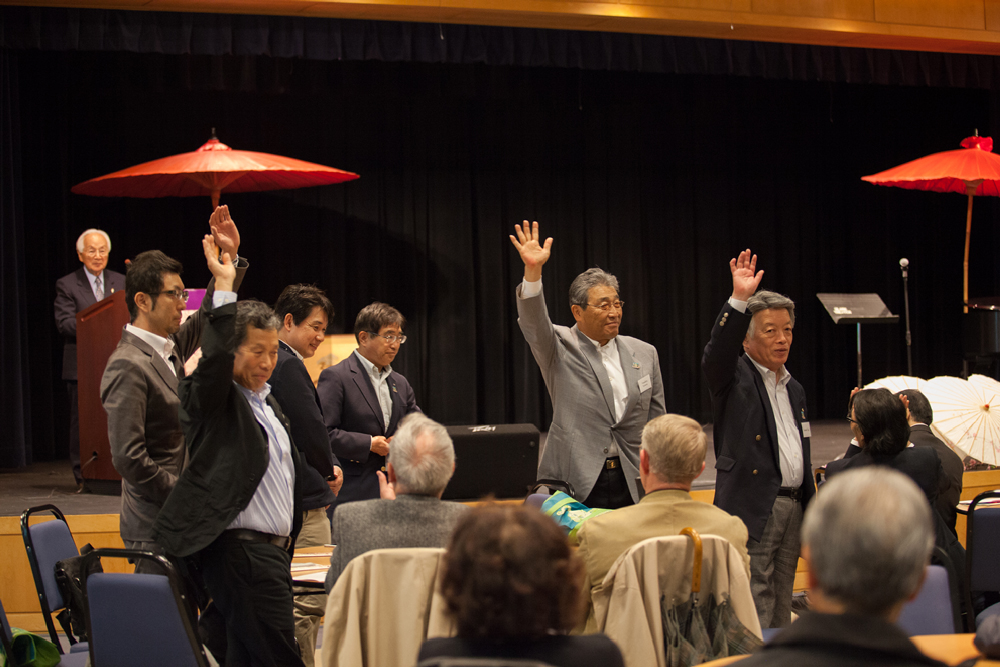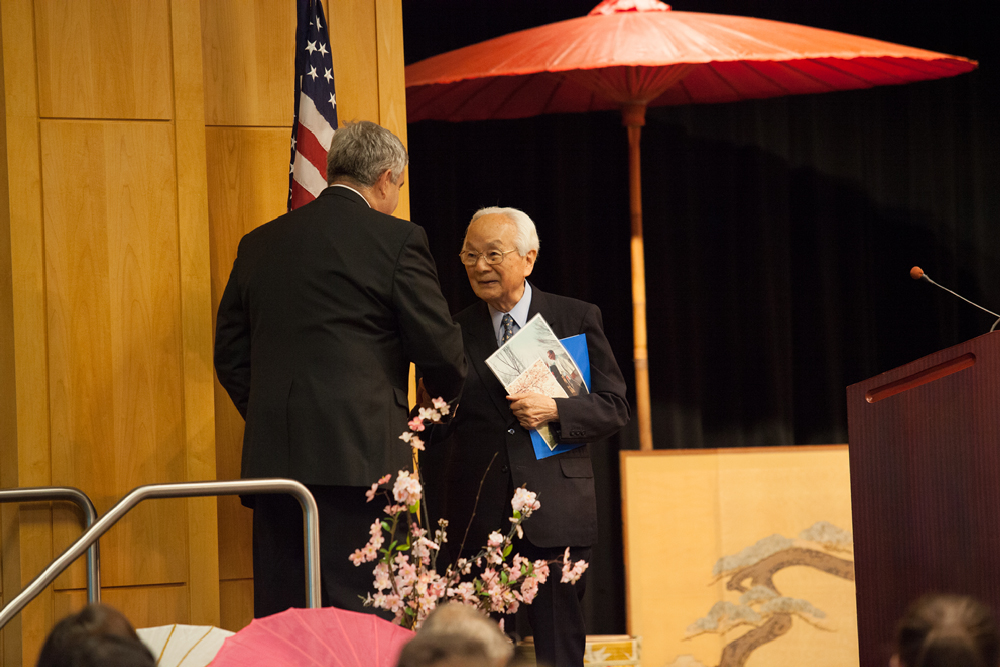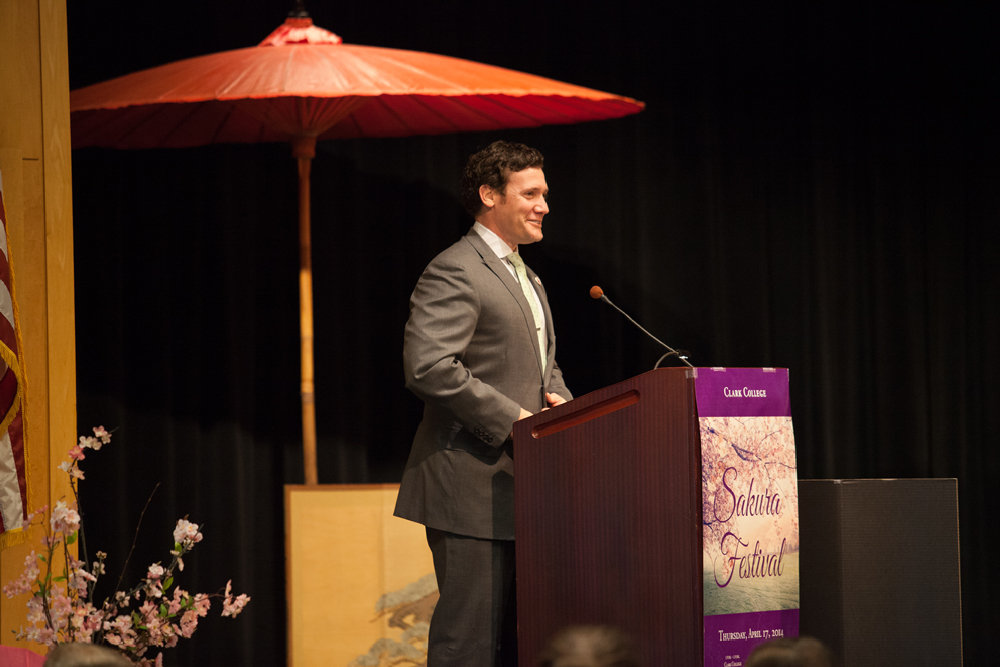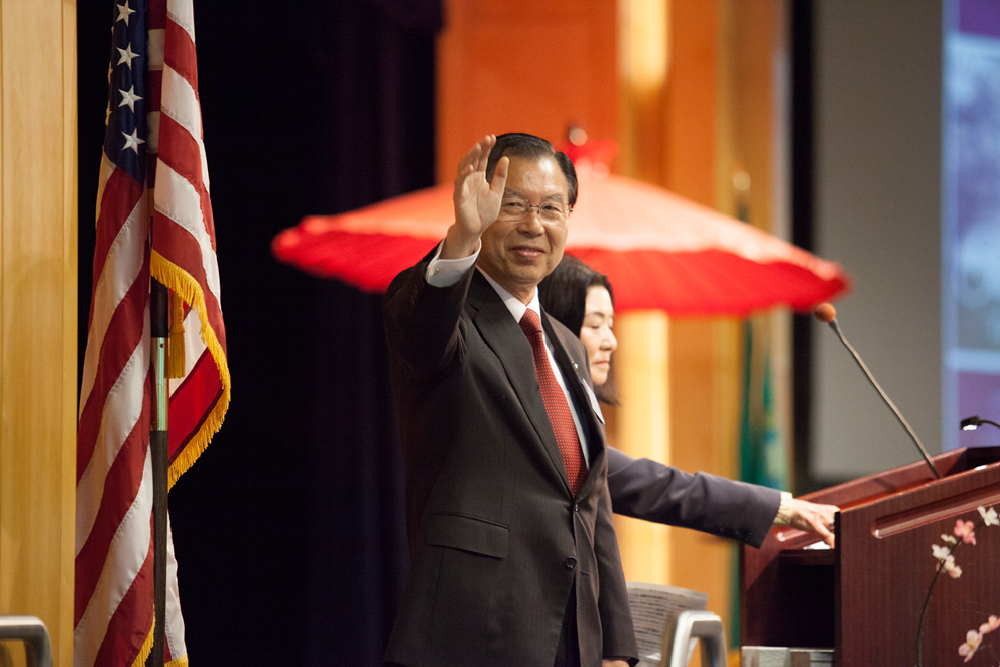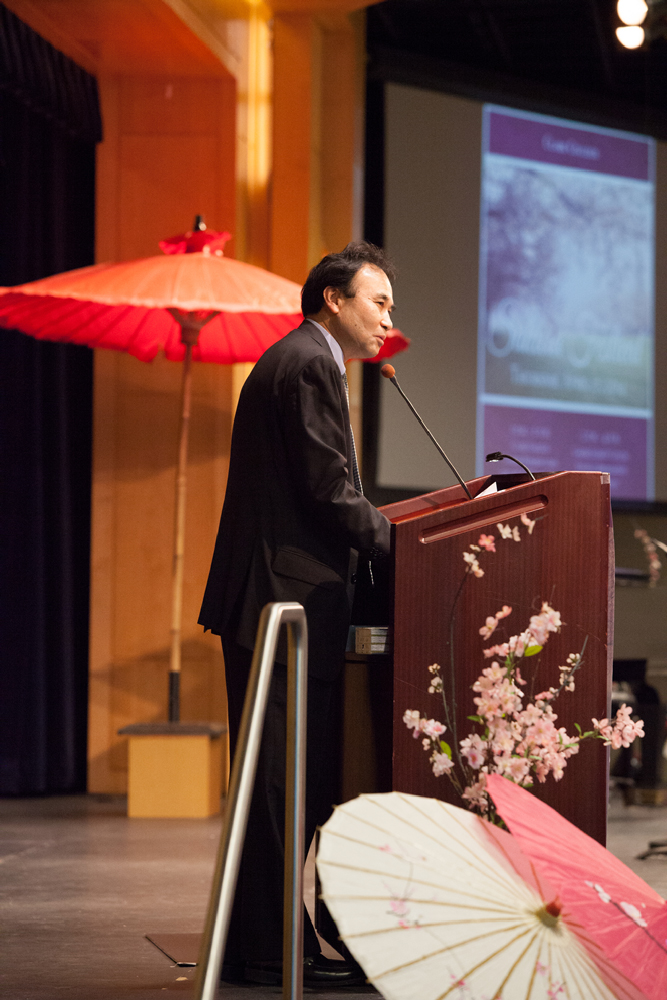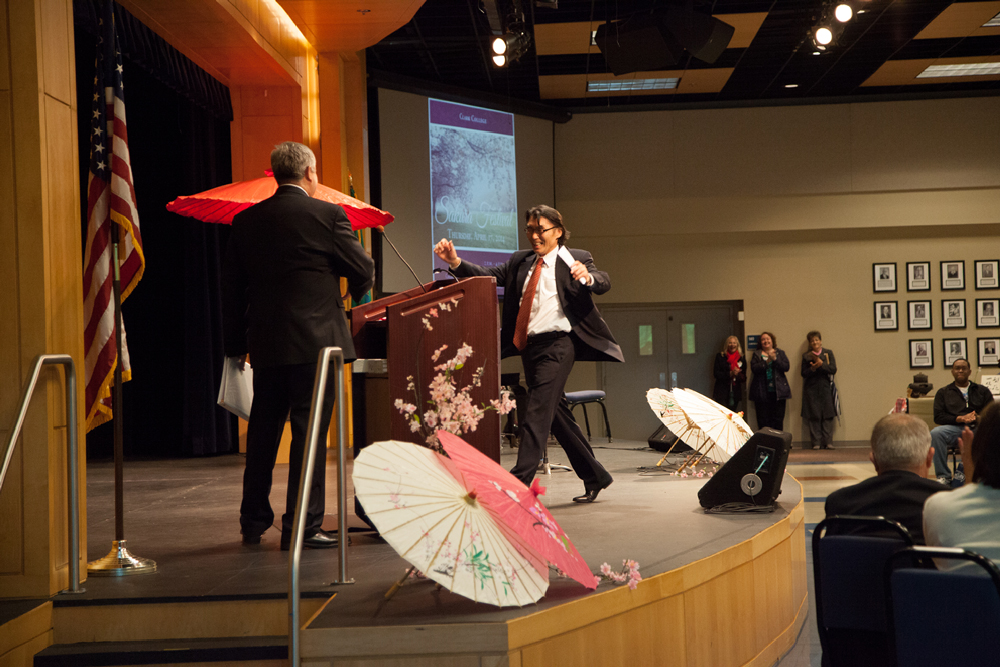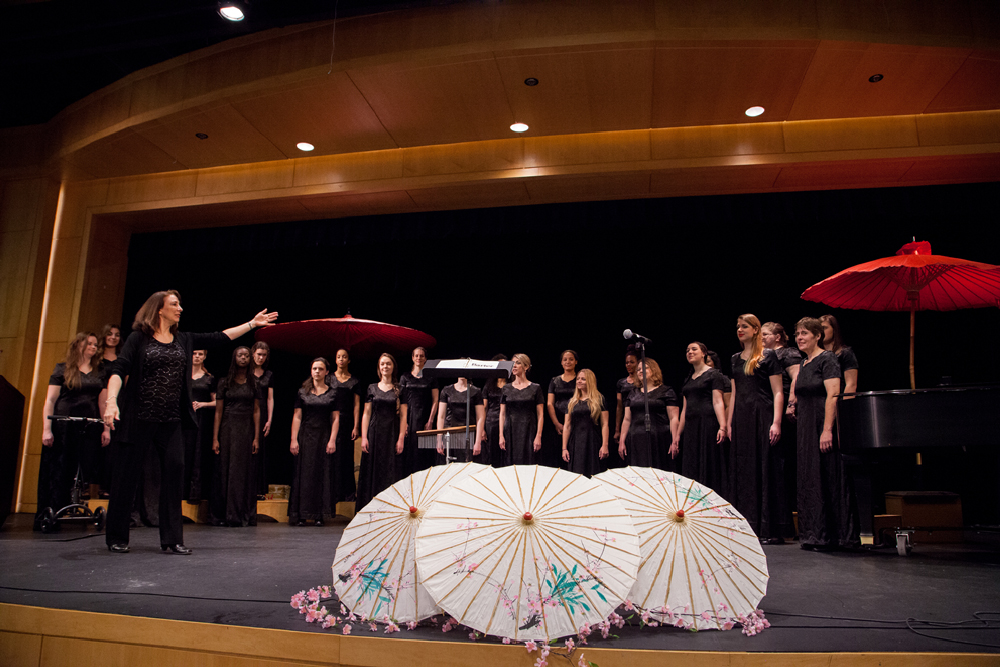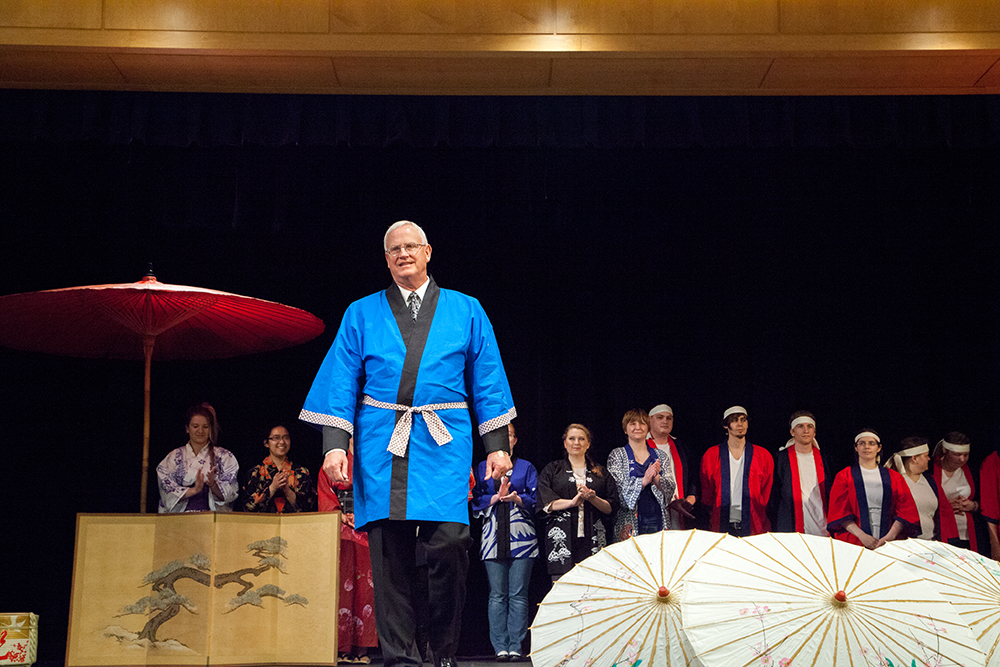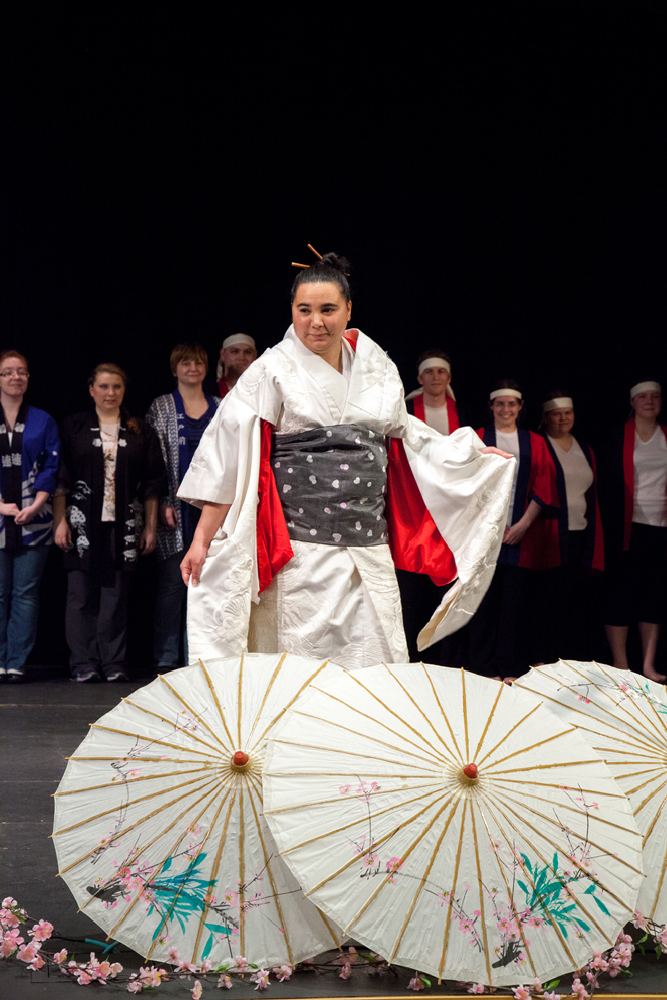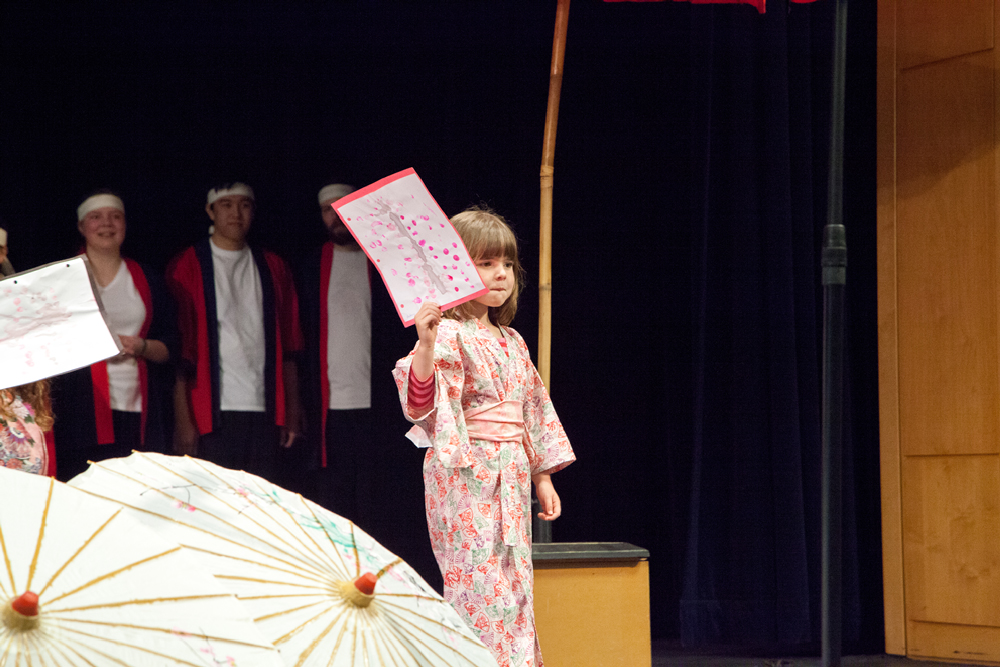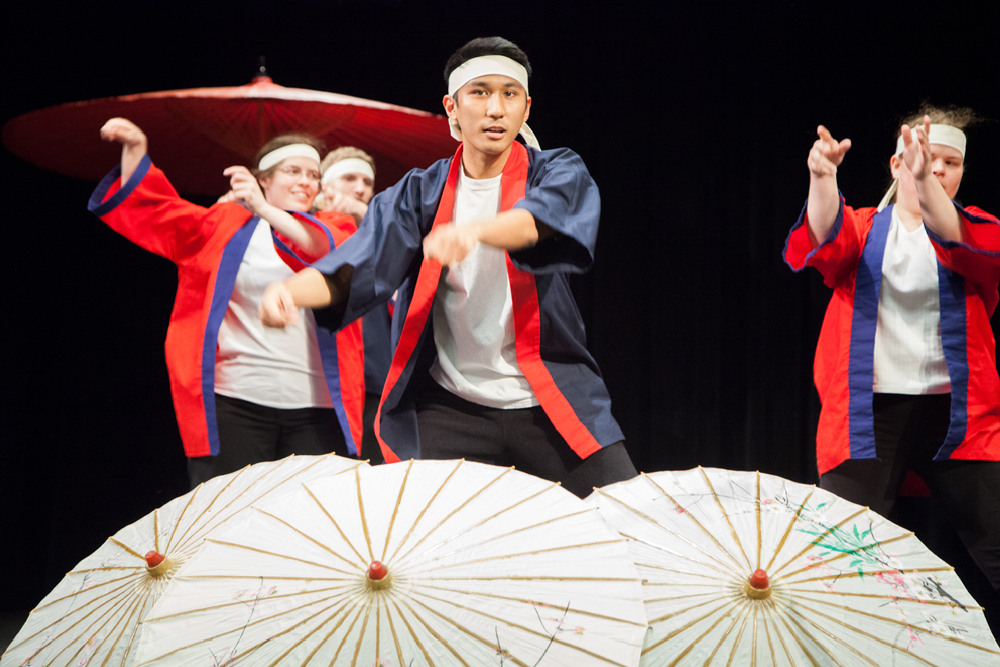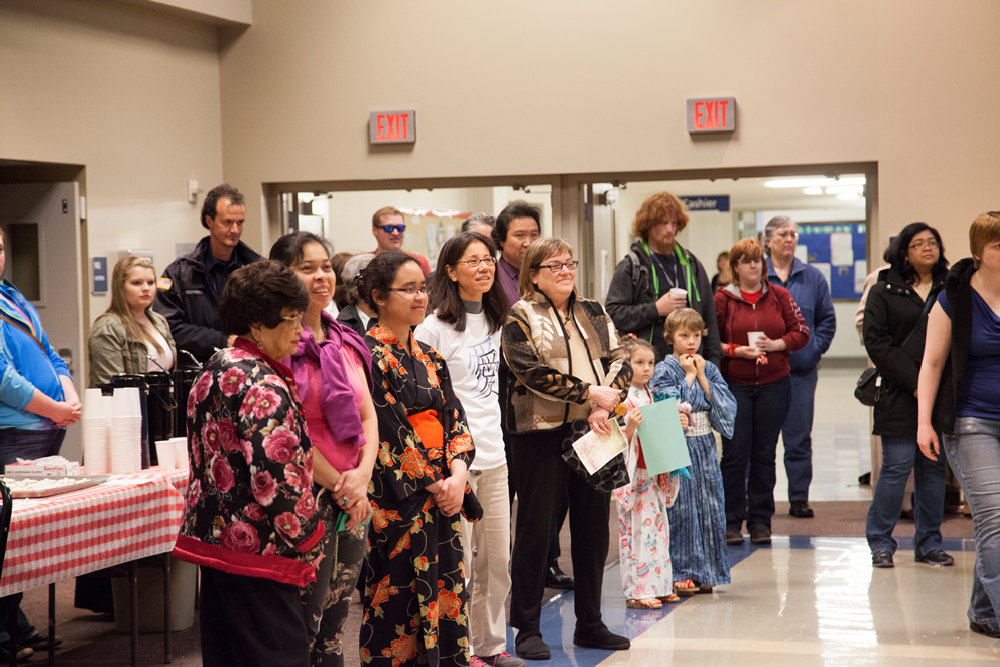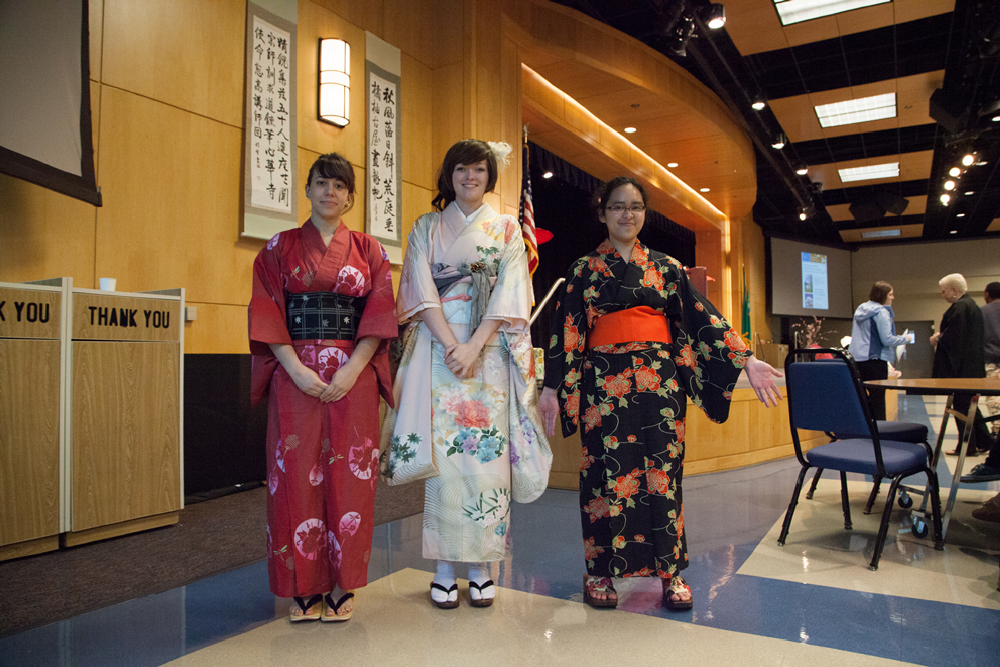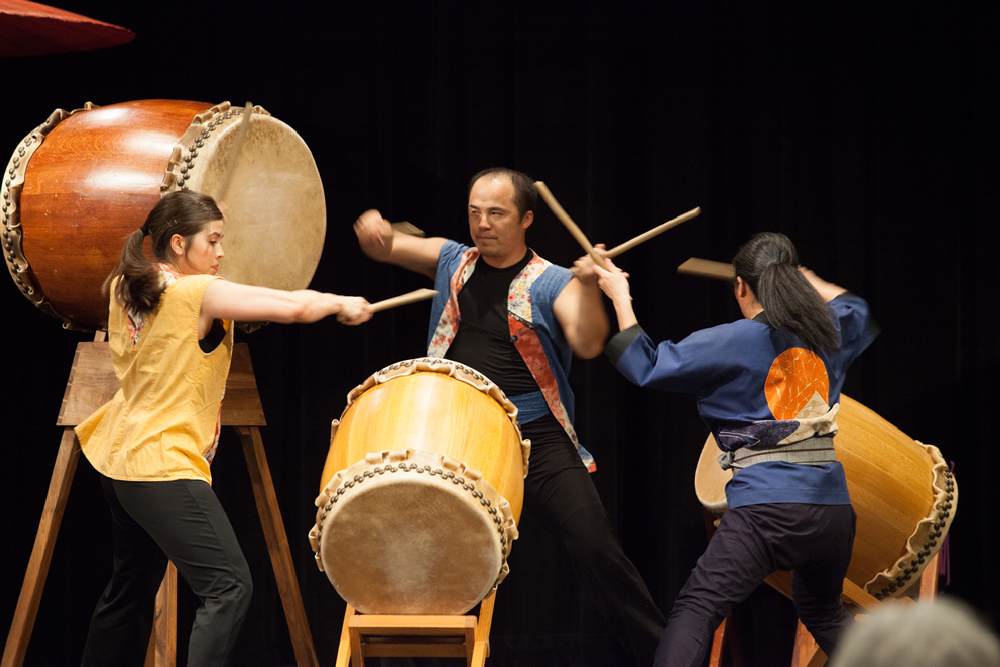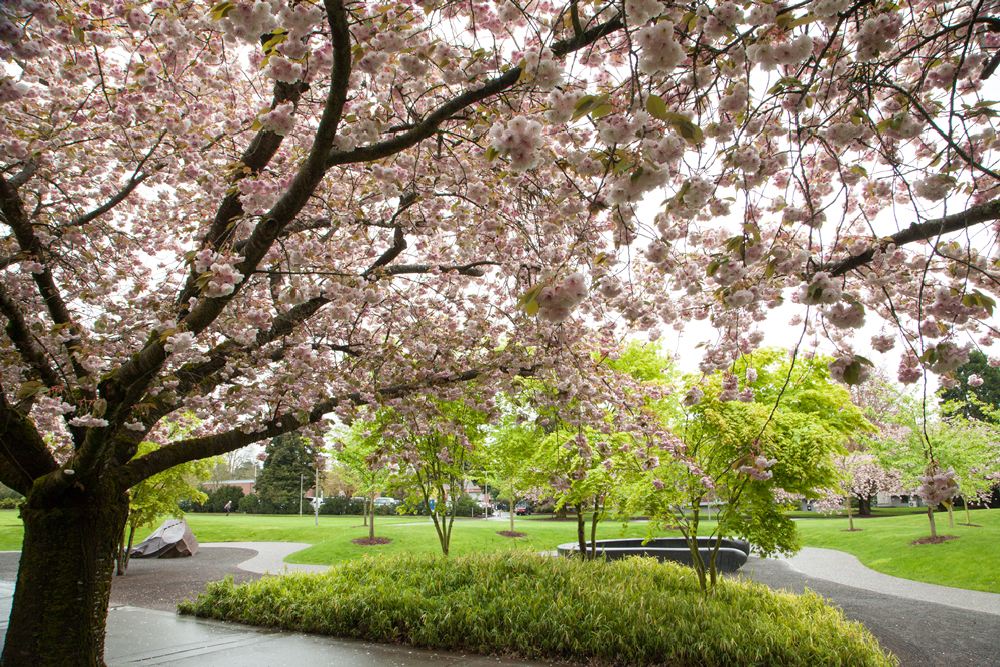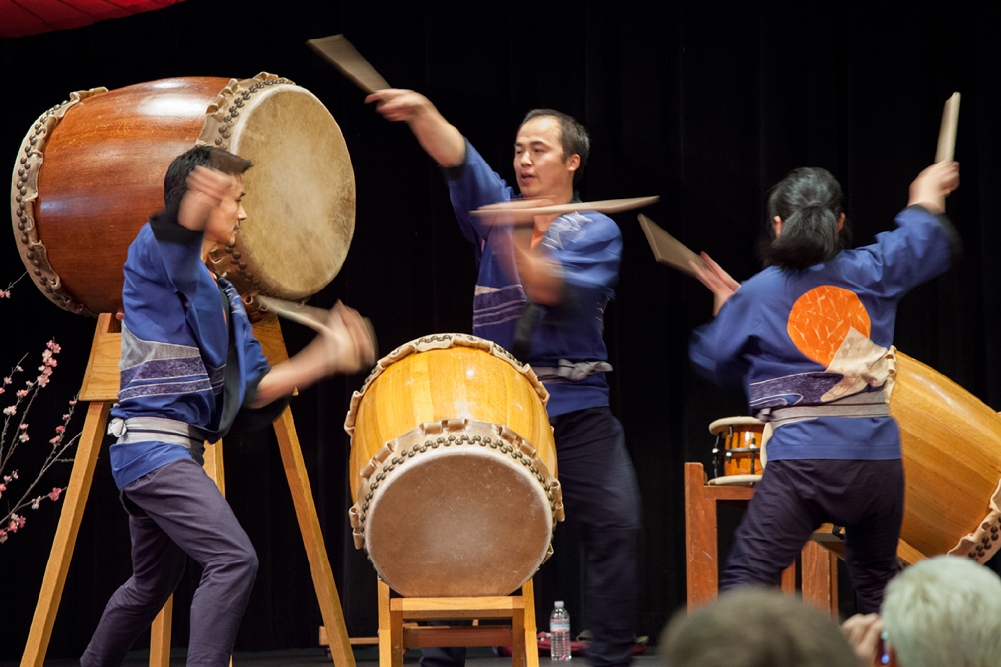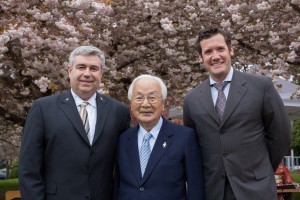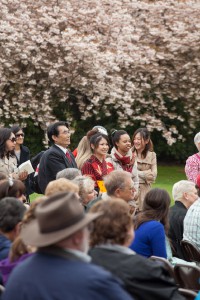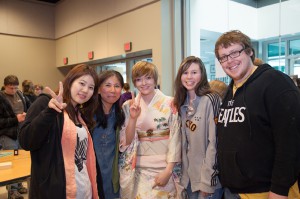Joyo Sister City Campus Tour
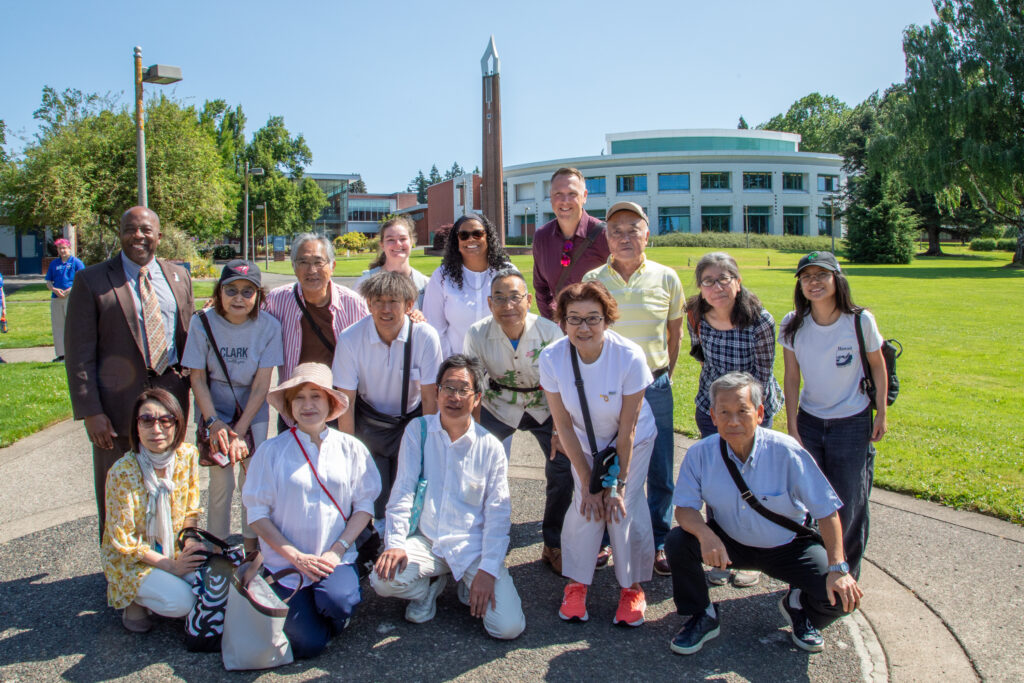
Clark College hosted a delegation of ten visitors from Joyo City, Japan, Vancouver’s sister city, on July 11.
The visitors were welcomed to the college’s International Programs office by Clark President Dr. Karin Edwards, followed by a greeting from Jody Shulnak, associate director of International Programs. Michiyo Okuhara, Clark College Japanese language professor, translated the greetings.
Board of Trustees members Marilee Scarbrough and Suzanne Donaldson introduced themselves to the Japanese delegation. Then came introductions from other college leadership including Sabra Sand, Vice President of Operations; Dr. Michele Cruse, Vice President of Student Affairs; Dr. Brad Avakian, Vice President of Human Resources; Dr. William “Terry” Brown, Vice President of Instruction; and Calen Ouellette, Chief Executive Officer at Clark College Foundation.
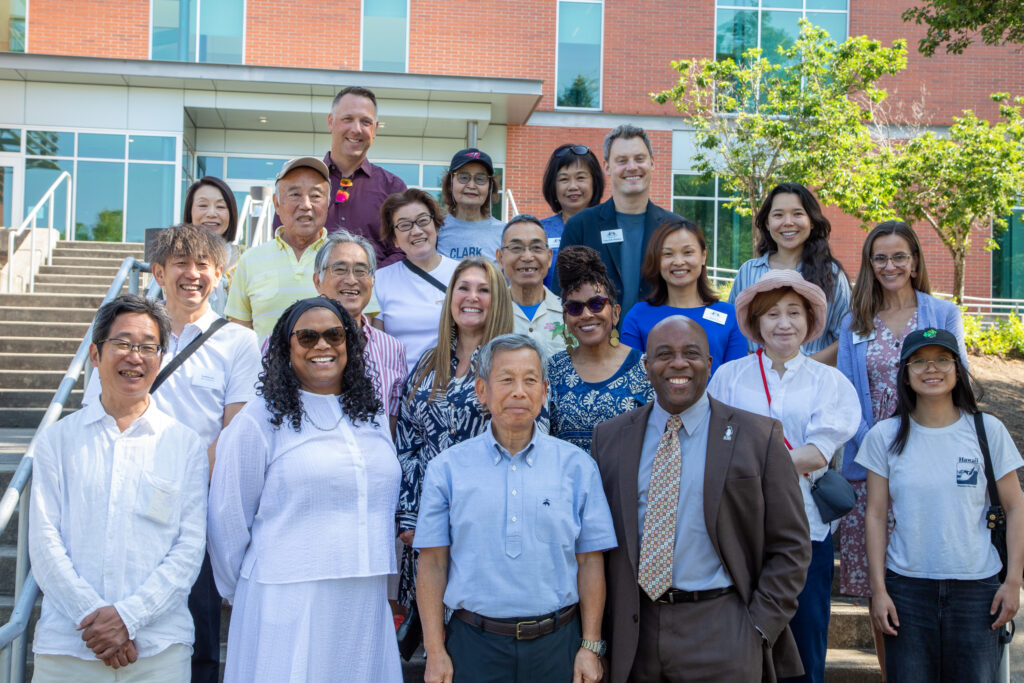
Clark College Foundation, Clark College, Vancouver mayor and city councilors, the Vancouver Rotary president, and area business leaders visited Joyo, Japan during the week of March 13, 2023. Calen Ouellette joined Dr. Edwards and other local leaders on the Joyo trip to celebrate the connection between the two regions.
Clark College Foundation CEO Calen Ouellette said, “It was a pleasure to reciprocate the hospitality of our friends from Joyo and to welcome them to our campus.”
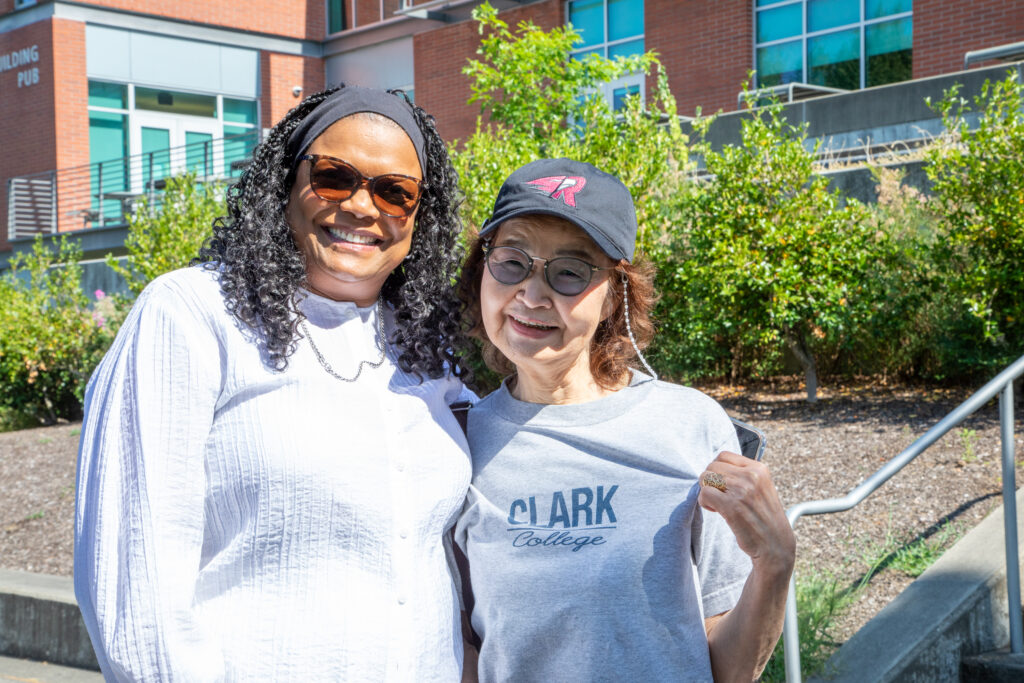
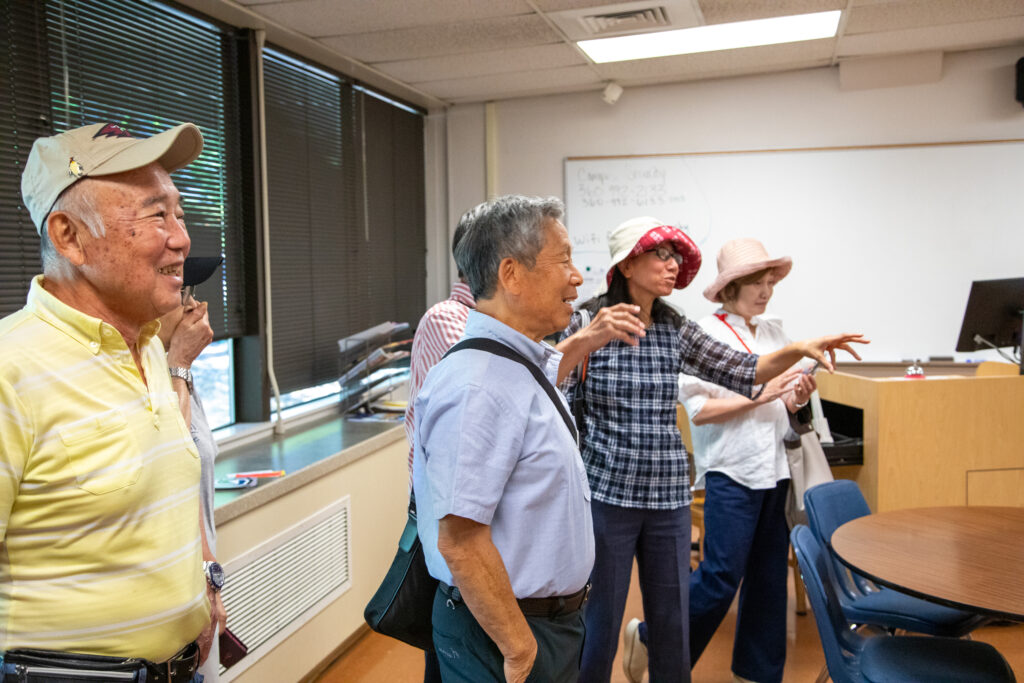
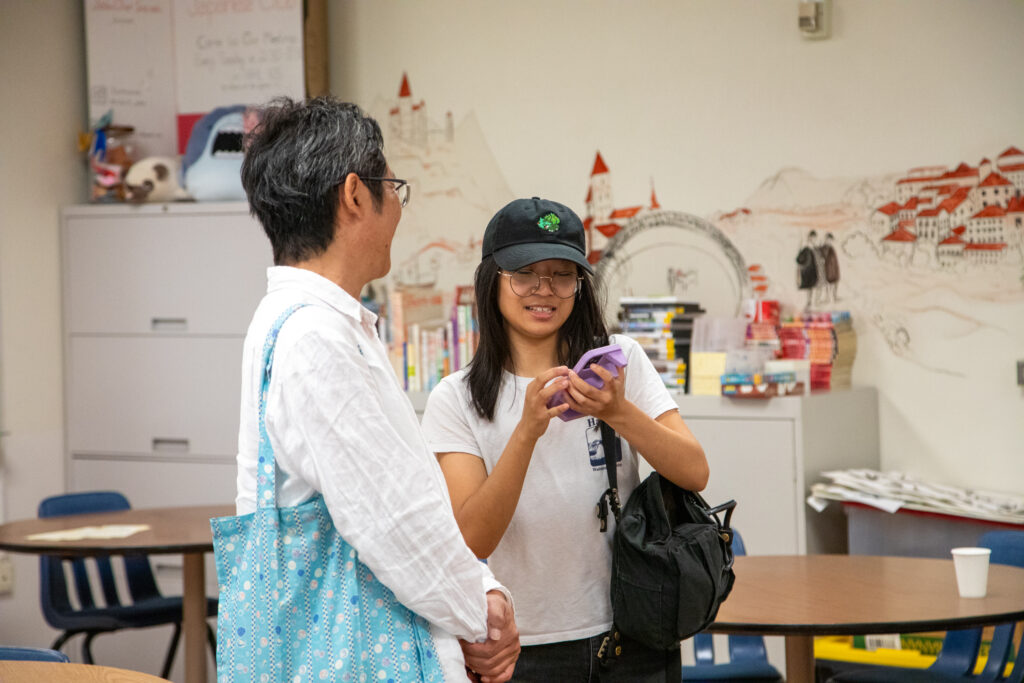
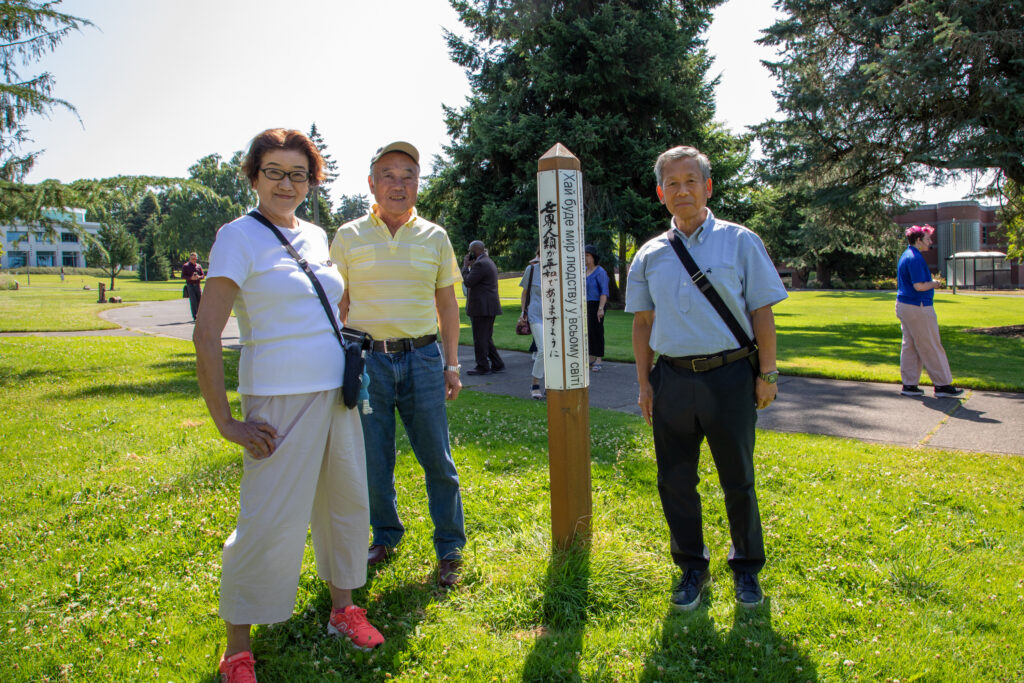
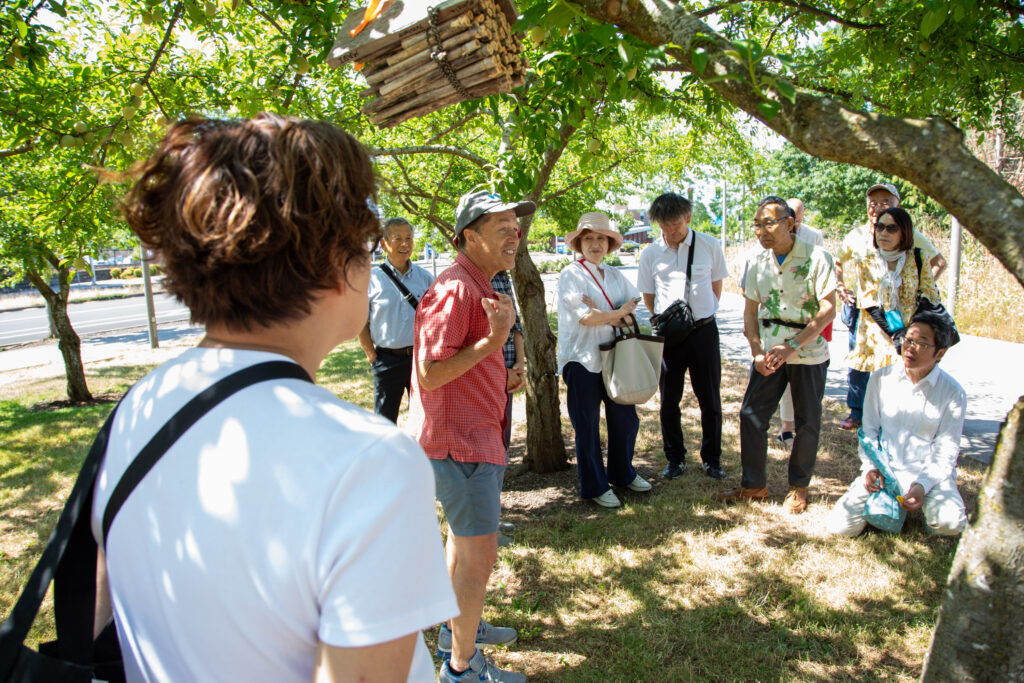
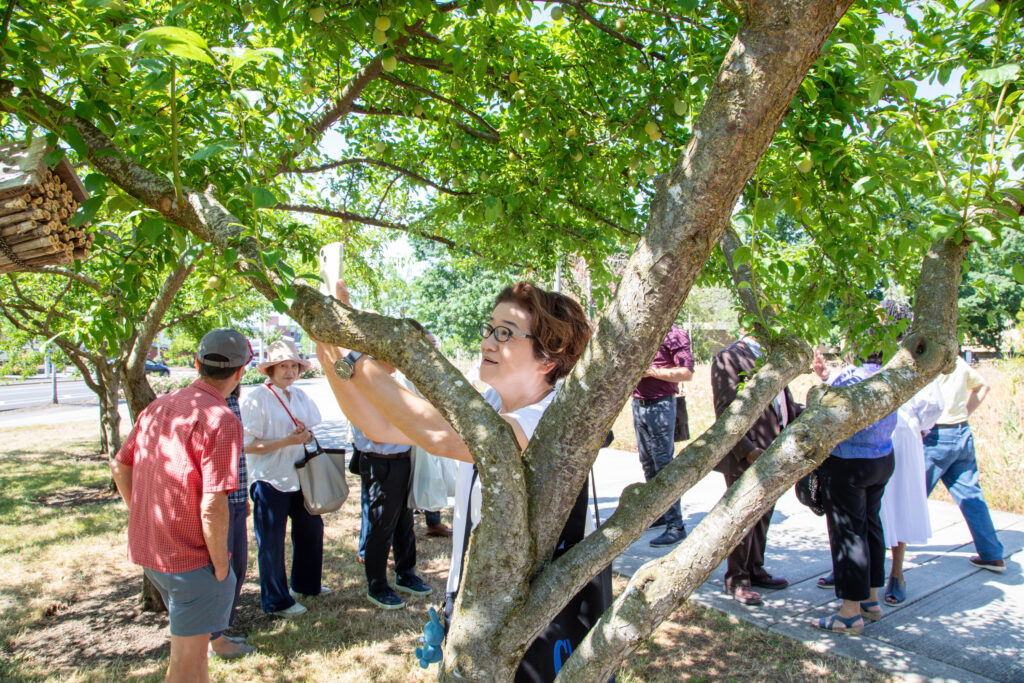
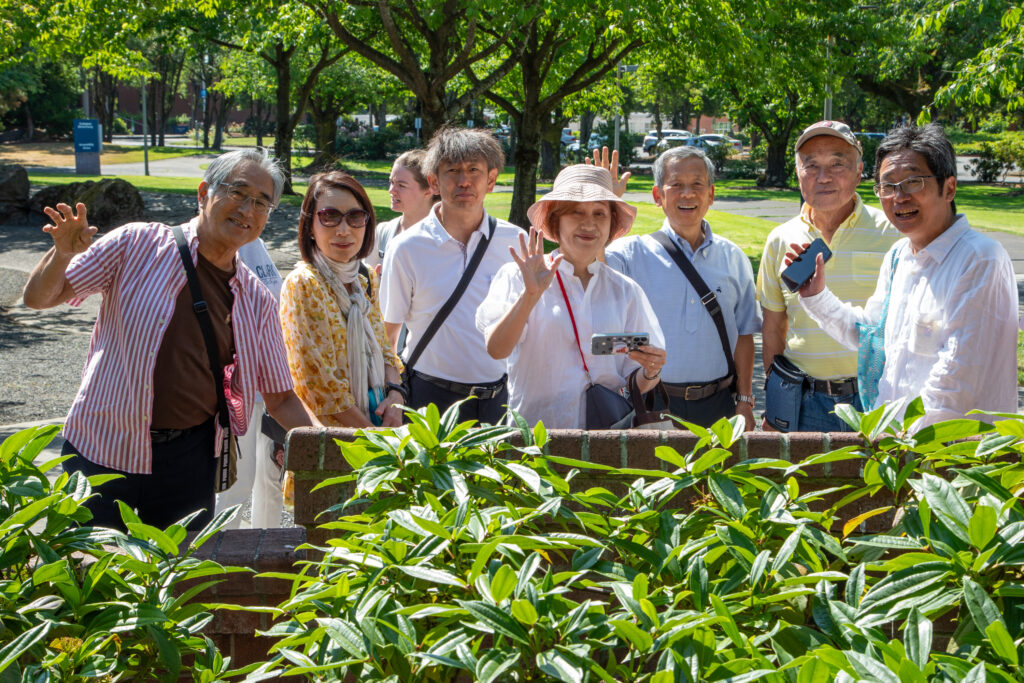
After gifts were exchanged and refreshments, two student ambassadors led the group on a brief walking tour of the campus, including.
- Group photo while standing on the steps on the south side of Gaiser Hall
- Hannah Hall 105 to see Michiyo Okuhara’s Japanese classroom
- More than 100 Shirofugen cherry trees in the Royce Pollard Japanese Friendship Garden
- The Clark College Bookstore, where delegates did a little shopping
- A Bee Campus tour by Steven Clark, biology professor, in front of the STEM Building
Next, the Joyo visitors hopped on C-Tran’s bus sporting Clark College campus photos. They rode to Ridgefield, where they toured the new Advanced Manufacturing Center at Clark College at Boschma Farms, which is expected to open Fall 2025. This was the largest tour to the center so far.
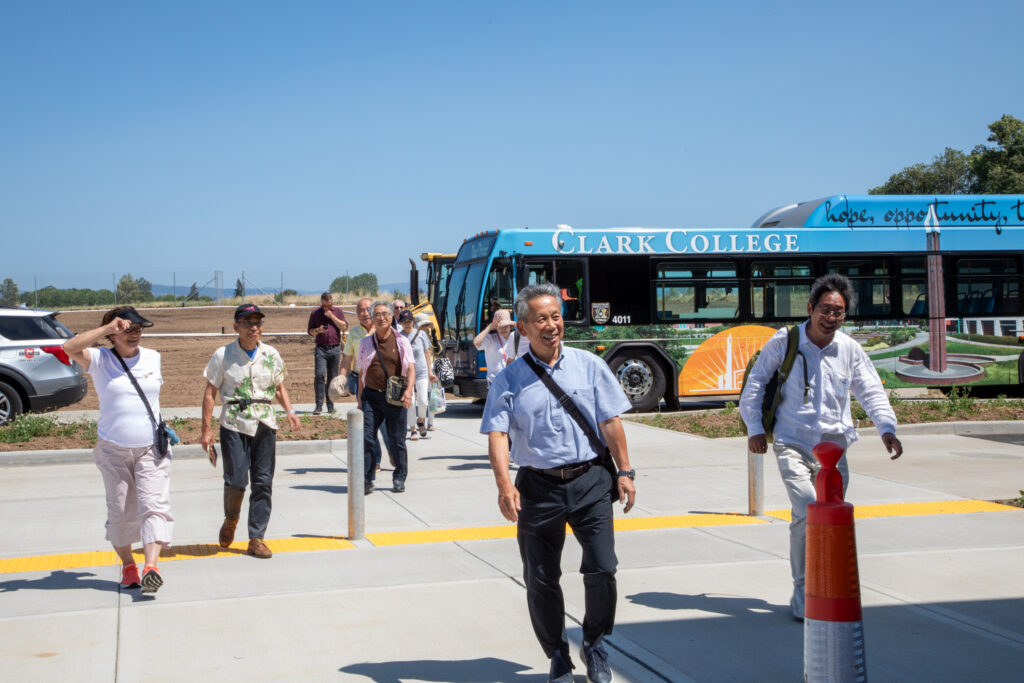
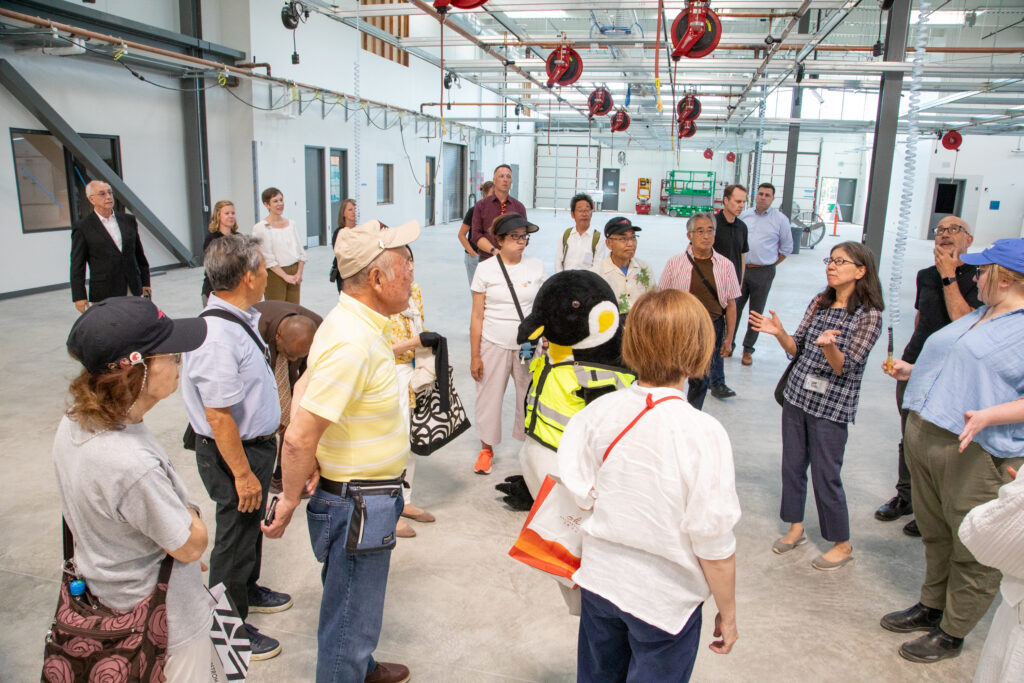
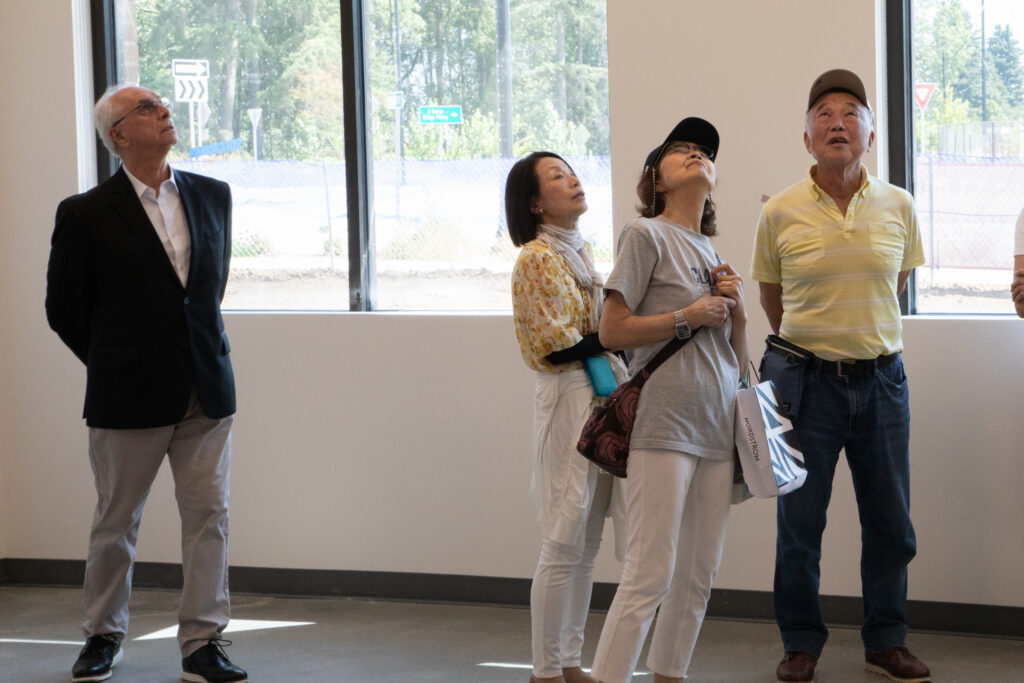
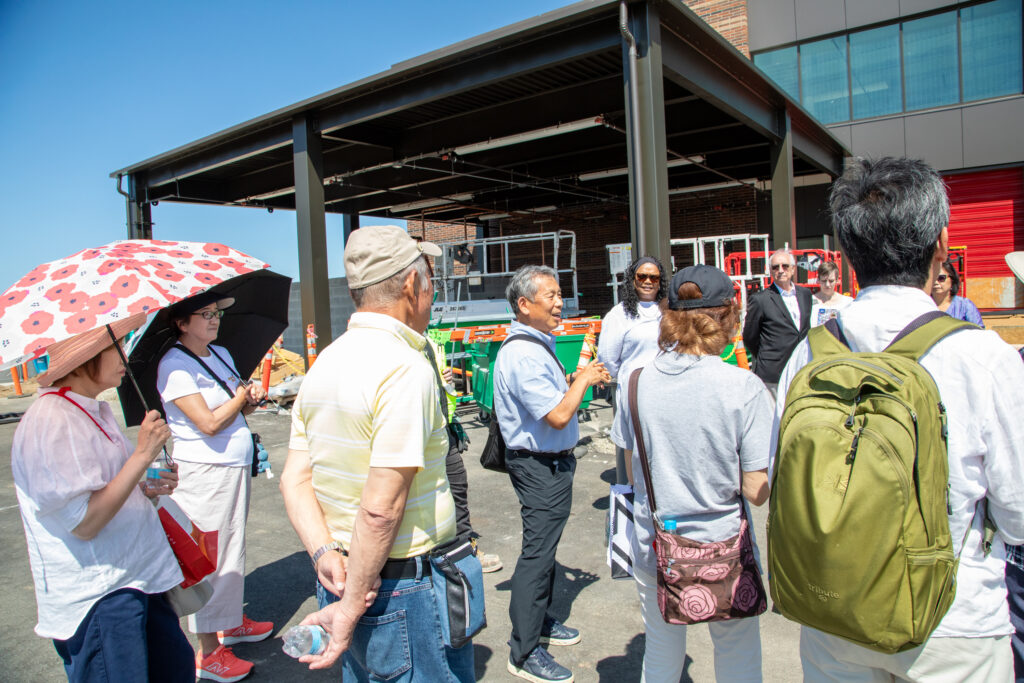
During the delegation’s visit, they also toured Vancouver City Hall, the Vancouver waterfront, Washington State University Vancouver’s new science building, and attended a Ridgefield Raptors’ baseball game.
Learn more about Clark’s relationship with Joyo, Japan: Each April, Clark College hosts its annual Sakura festival that honors the historic ties of friendship between the sister cities of Vancouver, Washington, and Joyo, Japan. The free community event underneath a canopy of cherry blossoms is presented by Clark College, the city of Vancouver, and Vancouver Rotary. Read the Sakura 2024 story here: https://news.clark.edu/2024/04/sakura-festival-is-april-25/
Sister city relationship between Vancouver, Washington, and Joyo, Japan: https://www.cityofvancouver.us/about-vancouver/sister-city-joyo-japan/
Photos: Clark College/Jenny Shadley
View more photos here: https://flic.kr/s/aHBqjBzjJw
